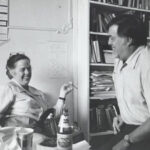The 1990s were a seismic decade for music, a period where genres collided and new sounds emerged from every corner of the cultural landscape. From the raw energy of grunge to the infectious beats of hip-hop, the introspective vibes of alternative rock to the sugary highs of pop, the 90s music scene was a vibrant tapestry of innovation and expression. Radio waves and MTV screens were saturated with a thrilling mix of sonic styles, making it an era of musical abundance unlike any other. Trying to encapsulate the sheer breadth of 90s music in a single list feels almost impossible – you could easily compile hundreds of phenomenal tracks from just one year, like the summer of ’94. However, this curated selection of 50 essential 90s Songs aims to capture the spirit of this explosive decade, showcasing the hits, the hidden gems, the cult favorites, the dance floor anthems, the guitar-driven rock tracks, and the karaoke staples that defined a generation. So, get ready to dive back into the sonic world of the 90s and rediscover the sounds that continue to entertain us.
Fuzzy – “Flashlight” (1994)
Emerging from the Boston music scene, Fuzzy was a band that seemed to appear out of nowhere, delivering one truly exceptional song: “Flashlight.” This quasi-grunge track features a melancholic female vocalist singing almost indecipherable lyrics about navigating through darkness with a flashlight. Largely missed by the mainstream, it found a dedicated audience among those who tuned into MTV’s 120 Minutes during its late-night music showcases. “Flashlight” raises a compelling question: how many other incredible quasi-grunge songs are buried within forgotten major-label albums from the post-Nirvana gold rush, waiting to be unearthed? While few may reach the brilliance of “Flashlight,” the search for these hidden treasures is a worthwhile pursuit for any 90s music enthusiast.
Britney Spears – “Sometimes” (1999)
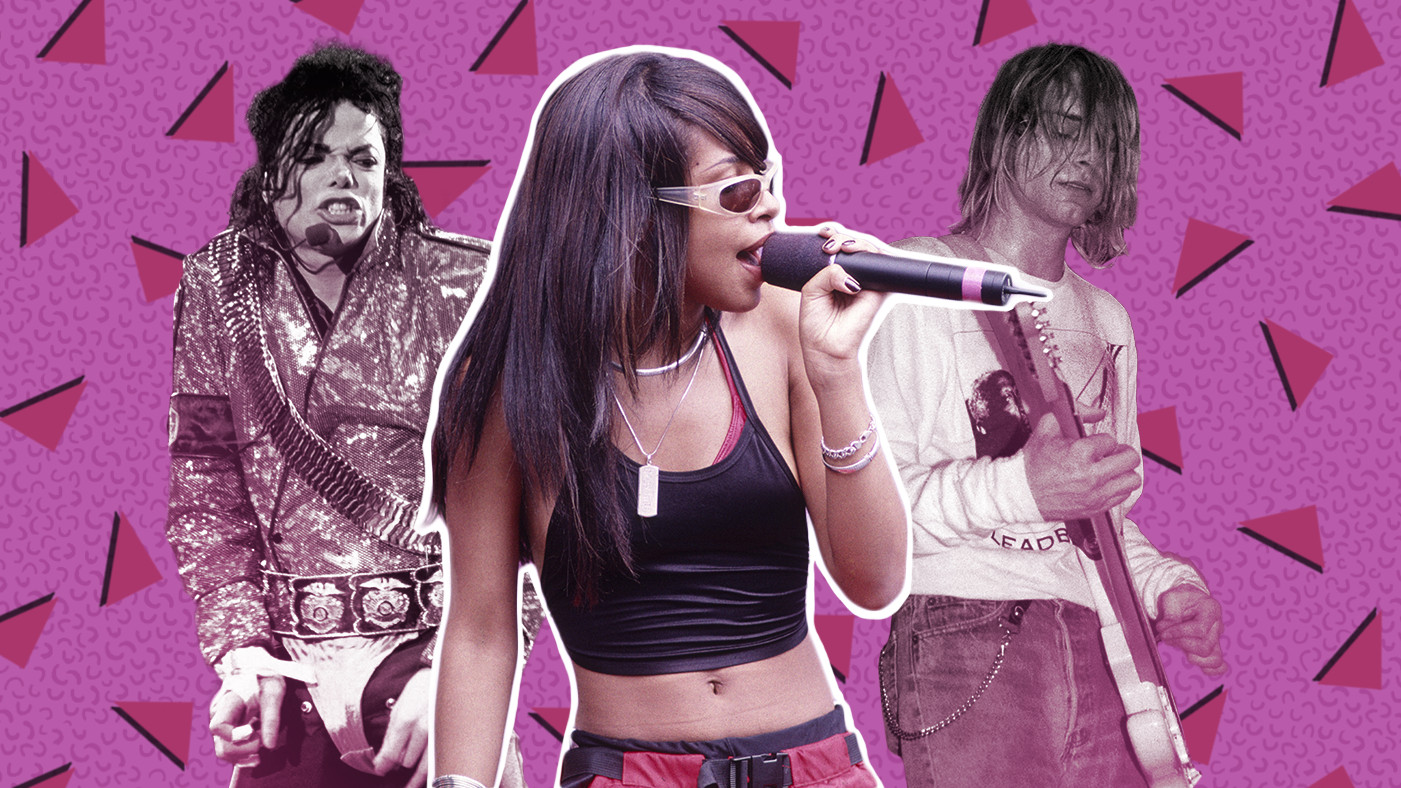 Britney Spears Sometimes 90s song
Britney Spears Sometimes 90s song
“Sometimes” marked Britney Spears’ second hit single, and arguably her first significant comeback moment. After the explosive success of “…Baby One More Time,” many wondered if Britney could maintain her momentum into the later part of the 90s. “Sometimes” became a Total Request Live staple, proving that Britney was not just a fleeting pop sensation but a force to be reckoned with. This song solidified her position as a defining pop star of the era and a blueprint for a new generation of female artists entering the 21st century.
The Offspring – “Self Esteem” (1994)
Hailing from Orange County, California, The Offspring rode the wave of 90s alternative rock to massive platinum success with “Self Esteem,” a catchy tune exploring themes of masochism and relationship dynamics. The song’s memorable line, “I may be dumb, but I’m not a dweeb,” resonated with a generation and remains surprisingly relatable. Of course, if you happen to identify as a “dumb dweeb,” you might just be the subject of this iconic 90s song.
Selena – “Fotos y Recuerdos” (1994)
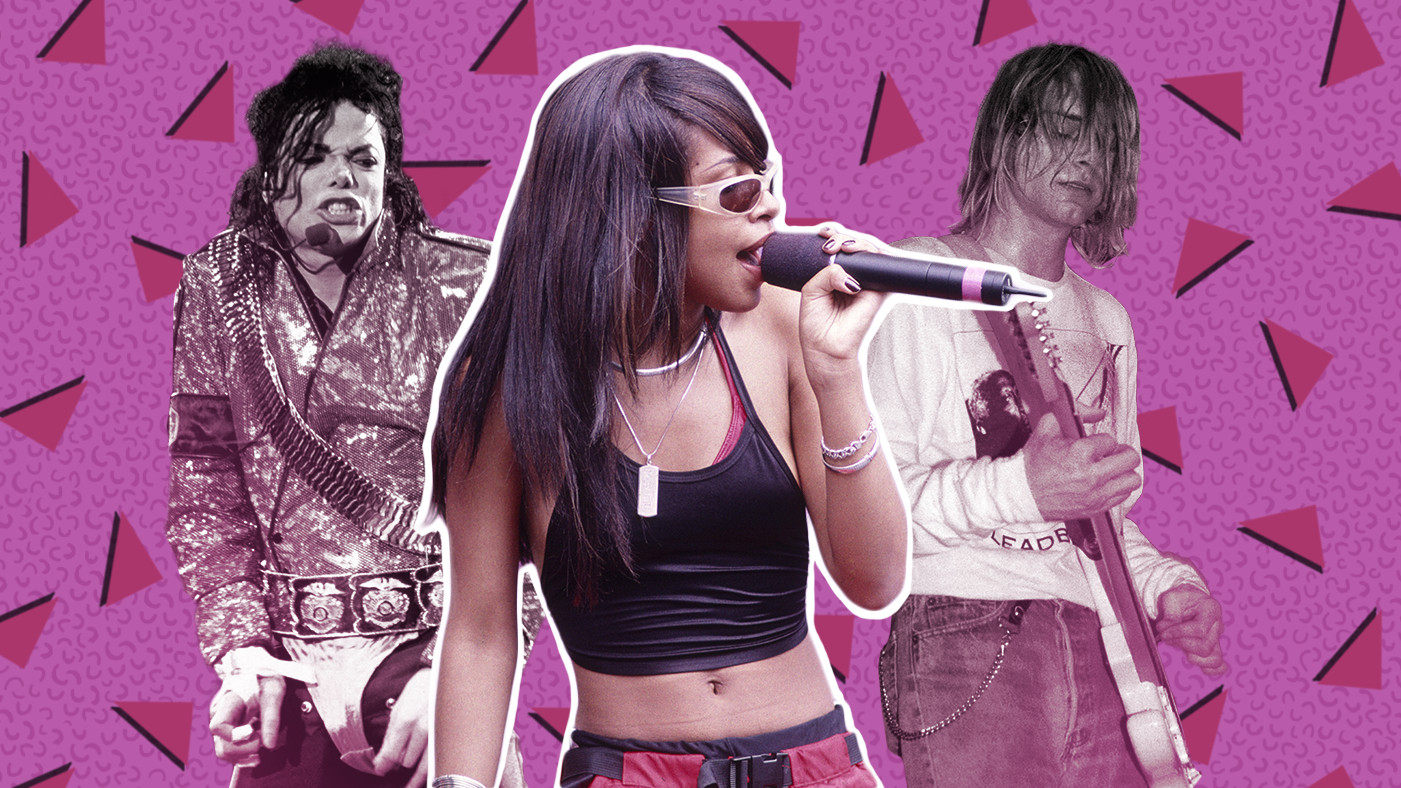 Selena Fotos y Recuerdos 90s Latin song
Selena Fotos y Recuerdos 90s Latin song
Selena, the undisputed queen of Tejano music, delivered a unique and memorable hit with “Fotos y Recuerdos.” This track is a Spanish-language reinvention of The Pretenders’ classic “Back on the Chain Gang,” showcasing Selena’s versatility and cross-cultural appeal. Tragically, “Fotos y Recuerdos” reached the Top Five on the Billboard Latin charts the week of Selena’s untimely death, becoming a poignant reminder of her immense talent and lasting legacy within 90s music.
Silver Jews – “Random Rules” (1998)
Imagine a honky-tonk bar in hell, and “Random Rules” by Silver Jews would be the perfect closing-time song on the jukebox. David Berman’s distinctive, drawling vocals deliver fractured, barstool philosophy in this melancholic yet captivating track. “Random Rules” is a quintessential 90s indie rock moment, showcasing the introspective and often unconventional songwriting that defined the genre.
Lil Kim ft. Lil Cease – “Crush on You (Remix)” (1997)
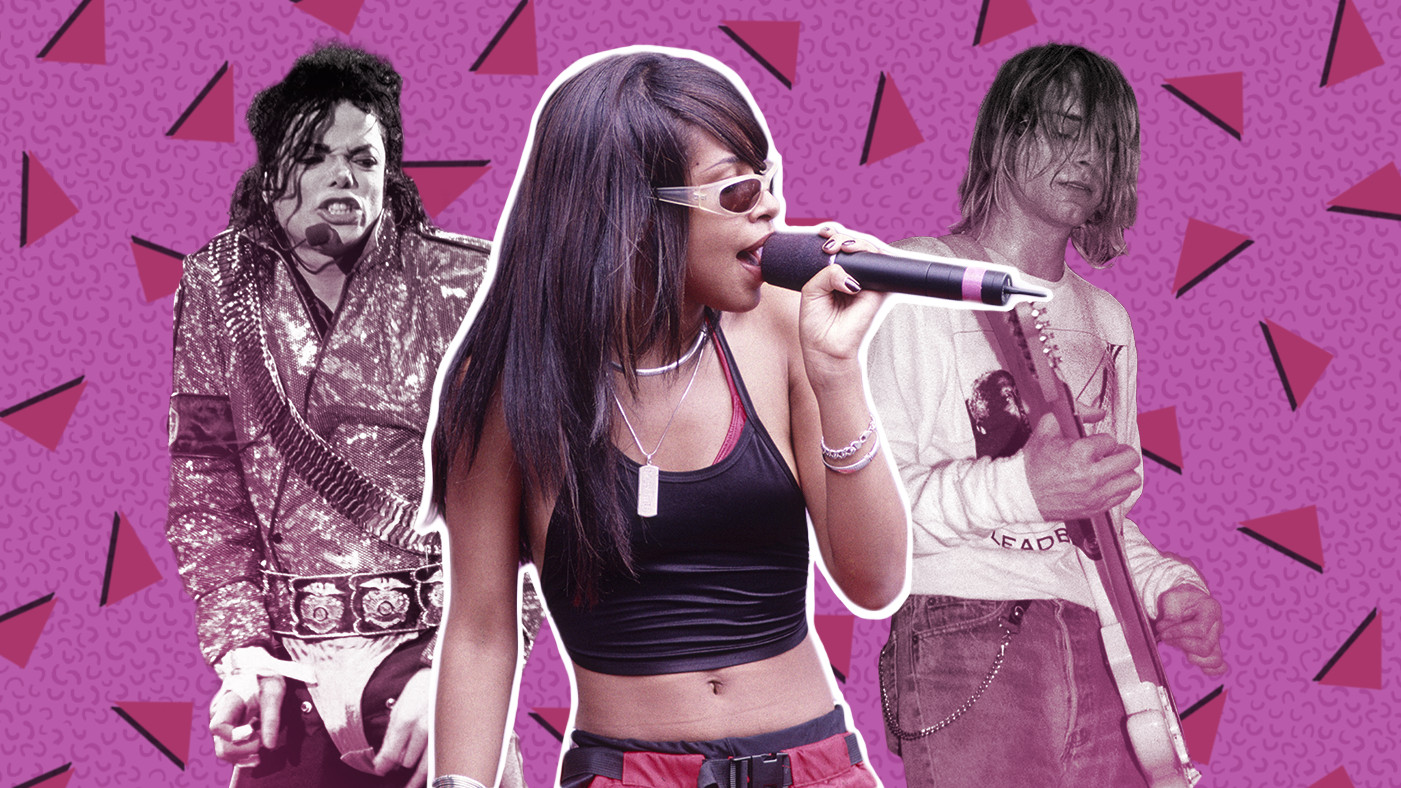 Lil Kim Crush on You Remix 90s hip hop song
Lil Kim Crush on You Remix 90s hip hop song
“Crush on You (Remix)” is the quintessential Bad Boy Records hit, embodying the label’s signature sound and attitude. Built around a strangely melancholic synth loop and featuring Lil Cease stepping up in Biggie’s absence, the song is elevated by the undeniable bravado of Lil Kim, the Queen Bee herself. Showcasing her iconic style with wigs and furs, Lil Kim commands attention with lines like “Shall I proceed?” answered with a resounding “Yes, indeed!” This track is a definitive moment in 90s hip hop and female empowerment within the genre.
Stereolab – “Cybele’s Reverie” (1996)
“Voulez vous coucher avec le revolution?” Stereolab, the European masters of vintage-keyboard aesthetics, crafted album after album of intellectually stimulating and sonically lush agitprop trance-prog music. “Cybele’s Reverie” stands as a high point in their discography, encapsulating their unique blend of retro sounds and forward-thinking musical exploration that defined a segment of 90s alternative music.
Supergrass – “Alright” (1995)
 Supergrass Alright 90s Britpop song
Supergrass Alright 90s Britpop song
Choosing just one song from the Clueless soundtrack to represent 90s music is a challenge in itself, much like trying to find profound meaning in a Pauly Shore movie. However, Supergrass’ “Alright” is a perfect encapsulation of the youthful exuberance and carefree spirit of the mid-90s. This Britpop anthem, featured prominently in the iconic teen film, became synonymous with the era’s slacker generation and its optimistic, if slightly naive, outlook.
Ace of Base – “The Sign” (1994)
Ace of Base, the world’s most successful Swedish reggae-influenced band, achieved global superstardom with “The Sign.” This mystical pop hit, with its slightly quirky English lyrics (“Life is demanding/Without understanding”), became a defining sound of 90s radio. “The Sign” exemplified the global reach of 90s pop music and the surprising popularity of Swedish acts within the international music scene.
Sophie B. Hawkins – “Damn I Wish I Was Your Lover” (1992)
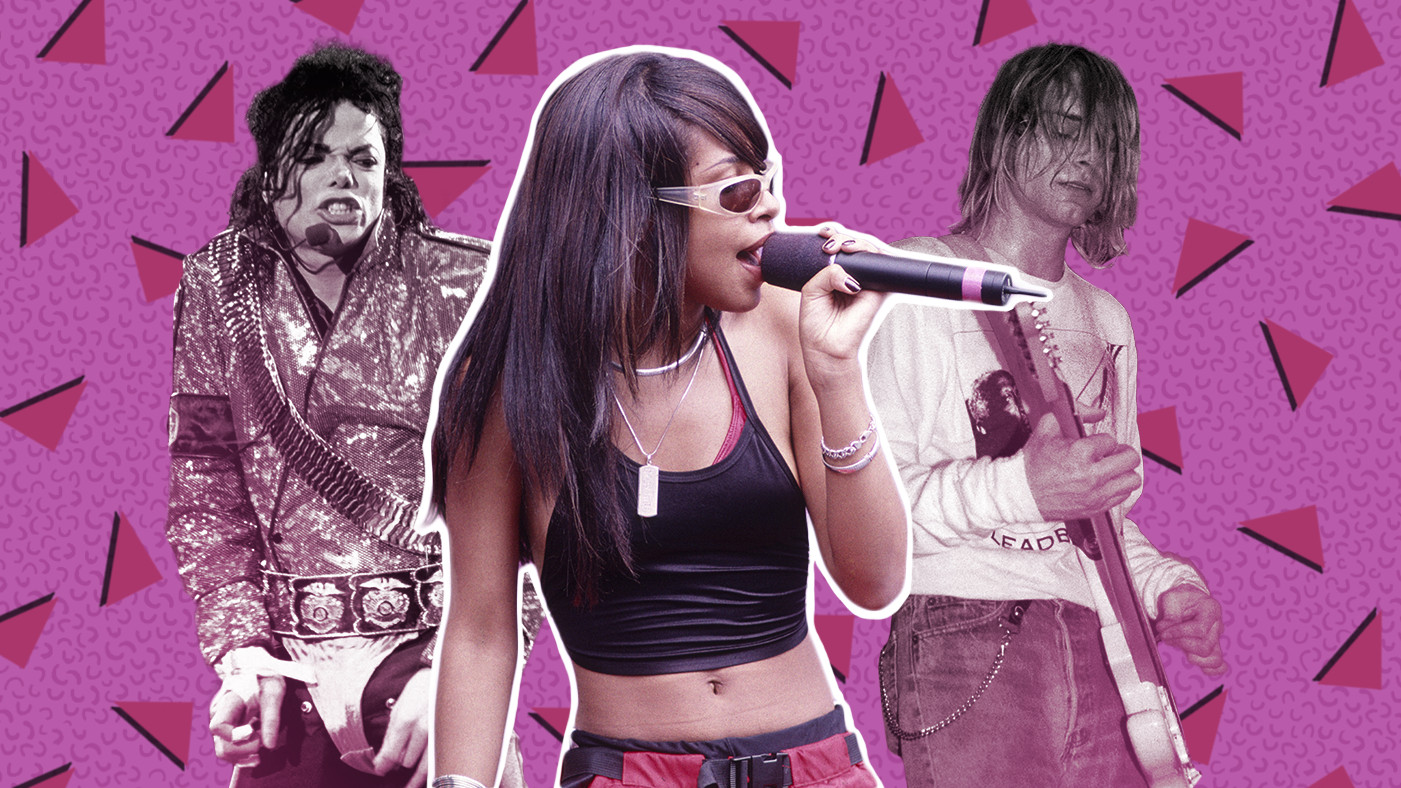 Sophie B Hawkins Damn I Wish I Was Your Lover 90s pop rock song
Sophie B Hawkins Damn I Wish I Was Your Lover 90s pop rock song
Sophie B. Hawkins, with her bohemian and sensual persona, delivered a powerful and emotionally raw performance in “Damn I Wish I Was Your Lover.” This song, about unrequited desire, showcases Hawkins’ vocal range and passionate delivery. The use of the word “damn” in the title and lyrics added an edge to the otherwise soulful ballad, reflecting the more explicit and confessional tone that was emerging in 90s songwriting.
Big Pun ft. Joe – “Still Not a Player” (1998)
Representing the Uptown Bronx sound, “Still Not a Player” brought together the late, great Big Pun and R&B crooner Joe. Set against a backdrop of smooth, lovers-rock piano chords, the track is a sophisticated blend of hip hop bravado and R&B smoothness. Big Pun woos “highly intelligent bachelorettes” with a pan-cultural party chant (“boricua, morena“) and suggestive lyrics, solidifying his status as a lyrical heavyweight within 90s hip hop before his untimely passing.
Sebadoh – “Brand New Love” (1992)
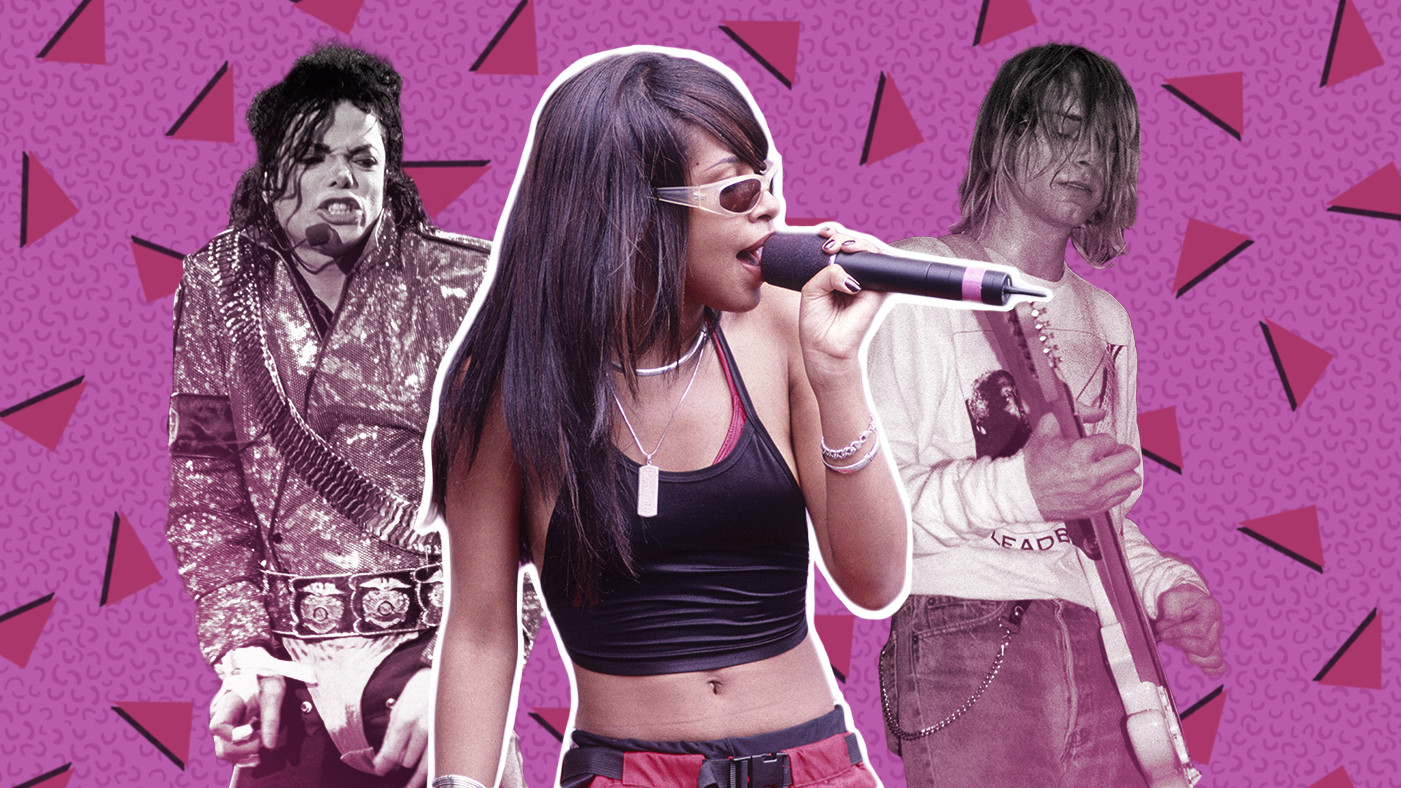 Sebadoh Brand New Love 90s indie rock song
Sebadoh Brand New Love 90s indie rock song
Sebadoh, known for their lo-fi punk sound, took a step towards vulnerability and emotional openness with “Brand New Love.” This track evolves from a folk-inspired ballad into a feedback-laden anthem about embracing new, potentially scary feelings. “Brand New Love” captured the raw and introspective nature of 90s indie rock, showcasing the genre’s willingness to explore vulnerability and emotional complexity.
Geto Boys – “Mind Playing Tricks on Me” (1991)
“Mind Playing Tricks on Me” by Geto Boys remains one of the most chilling and impactful gangsta rap narratives ever recorded. This song delves into the paranoia and psychological toll of street life, culminating in a haunting scene of Willie D pounding his bloody fists on concrete, set against a backdrop of eerie jazz-fusion loops. “Mind Playing Tricks on Me” offered a darker, more introspective side of gangsta rap, moving beyond simple boasts to explore the psychological realities of violence and fear.
New Radicals – “You Get What You Give” (1998)
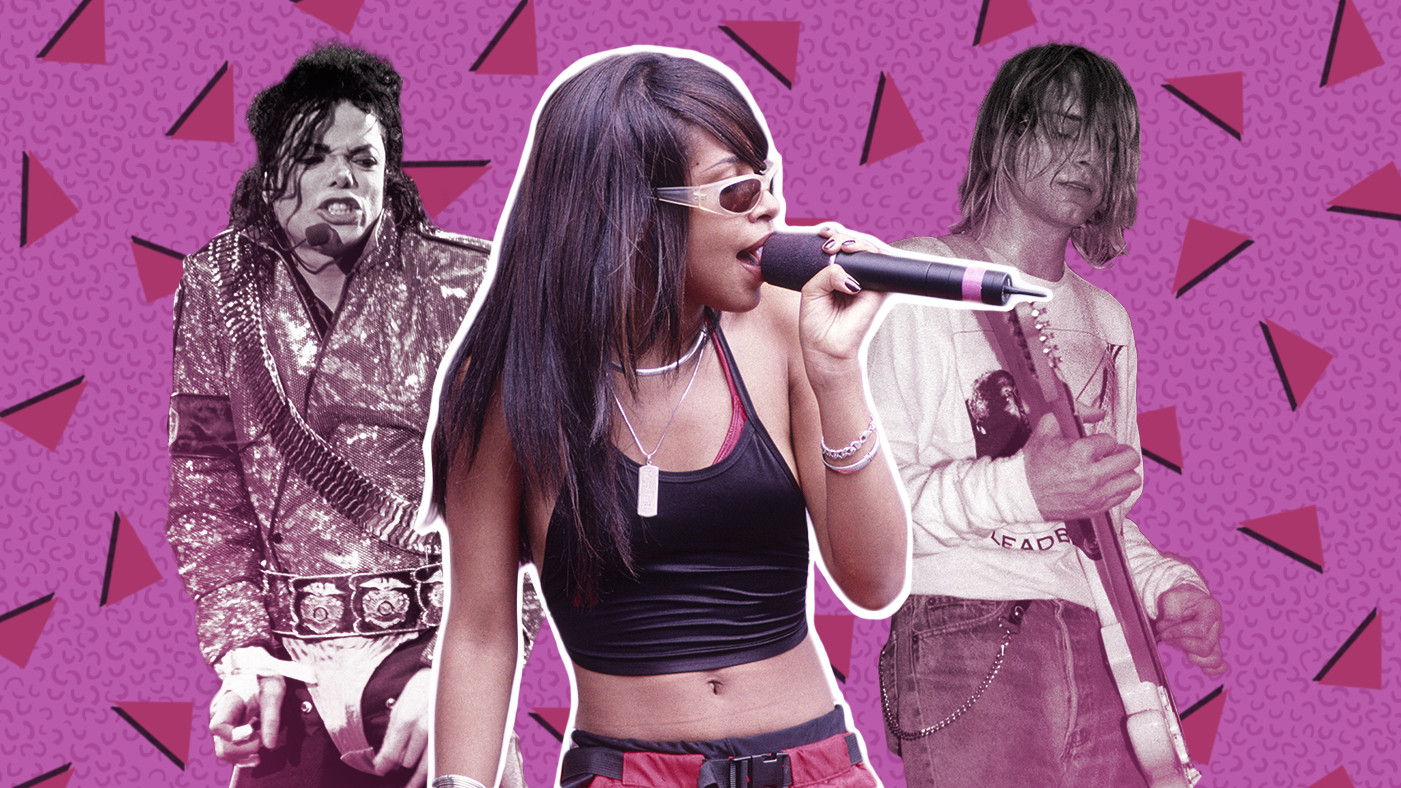 New Radicals You Get What You Give 90s one hit wonder
New Radicals You Get What You Give 90s one hit wonder
New Radicals are the quintessential one-hit wonder of the 90s, delivering the gloriously anthemic “You Get What You Give.” This prom-ready track, complete with its bucket-hat-wearing frontman, mall-riot-themed video, and cheeky celebrity disses (Beck, Hanson, Courtney Love, Marilyn Manson), captured the zeitgeist perfectly. Despite their brief moment in the spotlight, “You Get What You Give” remains an enduring 90s anthem of youthful rebellion and optimistic energy. While the New Radicals faded quickly, their frontman resurfaced years later with an Oscar nomination for Begin Again in 2015, though sadly, the bucket hat remained absent from the red carpet.
Portishead – “Glory Box” (1994)
Portishead’s “Glory Box” is the epitome of elegant trip-hop melancholy. Beth Gibbons’s haunting vocals, drenched in sorrow, intertwine with a timeless sample of Isaac Hayes’s cheeba-zonked funk from the 70s. This sample experienced a resurgence in 2015 thanks to Alessia Cara, who wasn’t even born when “Glory Box” first captivated listeners. The song perfectly encapsulates the mood and sonic textures of 90s trip-hop, a genre that blended hip-hop beats with atmospheric and often melancholic soundscapes.
Sheryl Crow – “If It Makes You Happy” (1996)
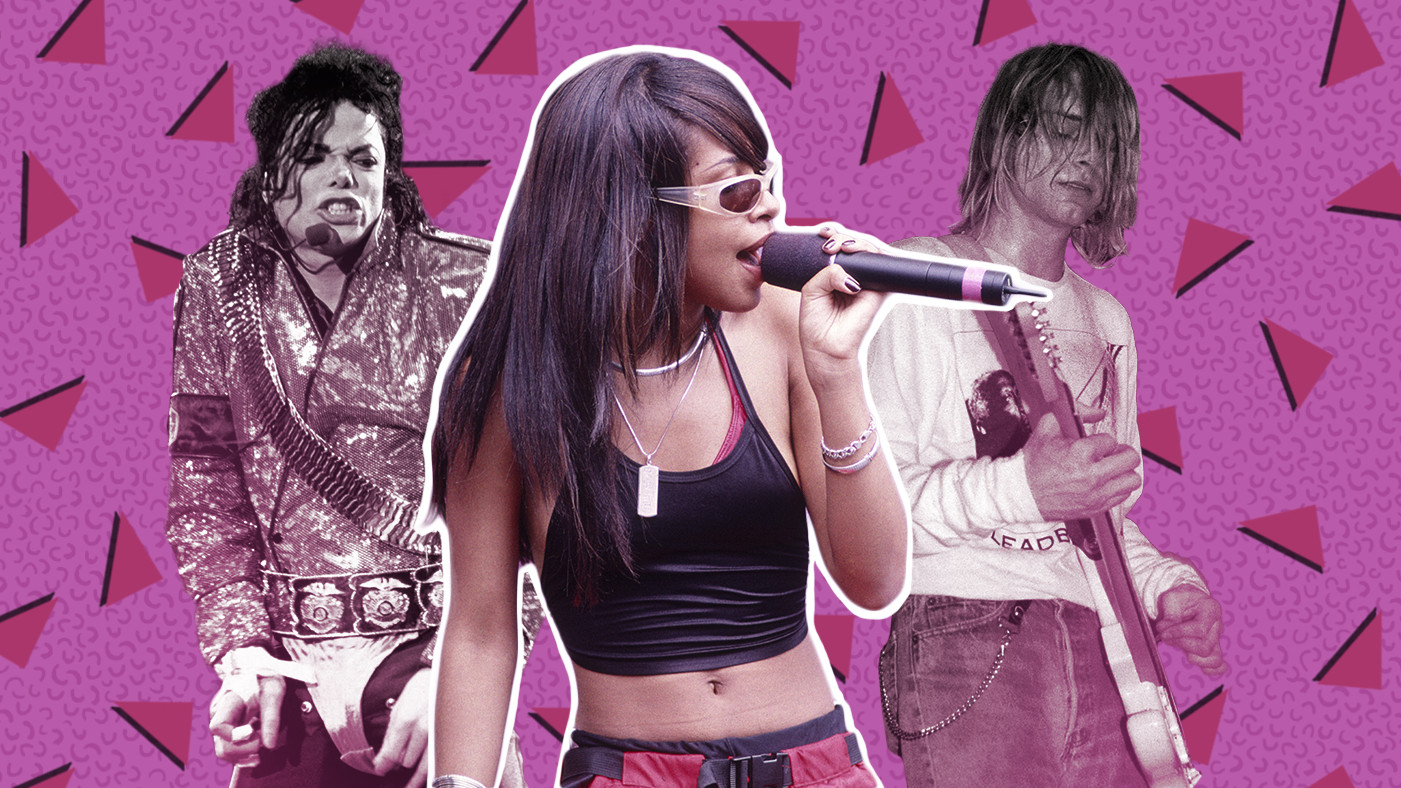 Sheryl Crow If It Makes You Happy 90s rock song
Sheryl Crow If It Makes You Happy 90s rock song
Sheryl Crow’s “If It Makes You Happy” resonated with a generation seeking relatable, slightly world-weary rock anthems. The song’s opening line about “scraping the mold off the bread” perfectly encapsulates the 90s vision of rock and roll stoner torpor, blending laid-back vibes with sharp, insightful lyrics. Crow’s blend of rock, pop, and country influences made her a significant voice in 90s music.
En Vogue – “Don’t Let Go (Love)” (1996)
En Vogue, the reigning divas of funky R&B, delivered their steamiest slow jam with “Don’t Let Go (Love).” This track is a masterclass in vocal harmonies and sensual songwriting, exploring the complexities of love, heartbreak, and emotional vulnerability. The song’s most memorable moment, “If I could wear your clothes… I’d pretend I was you… and looooose controoool!” perfectly captures the passionate intensity of 90s R&B.
Helium – “XXX” (1994)
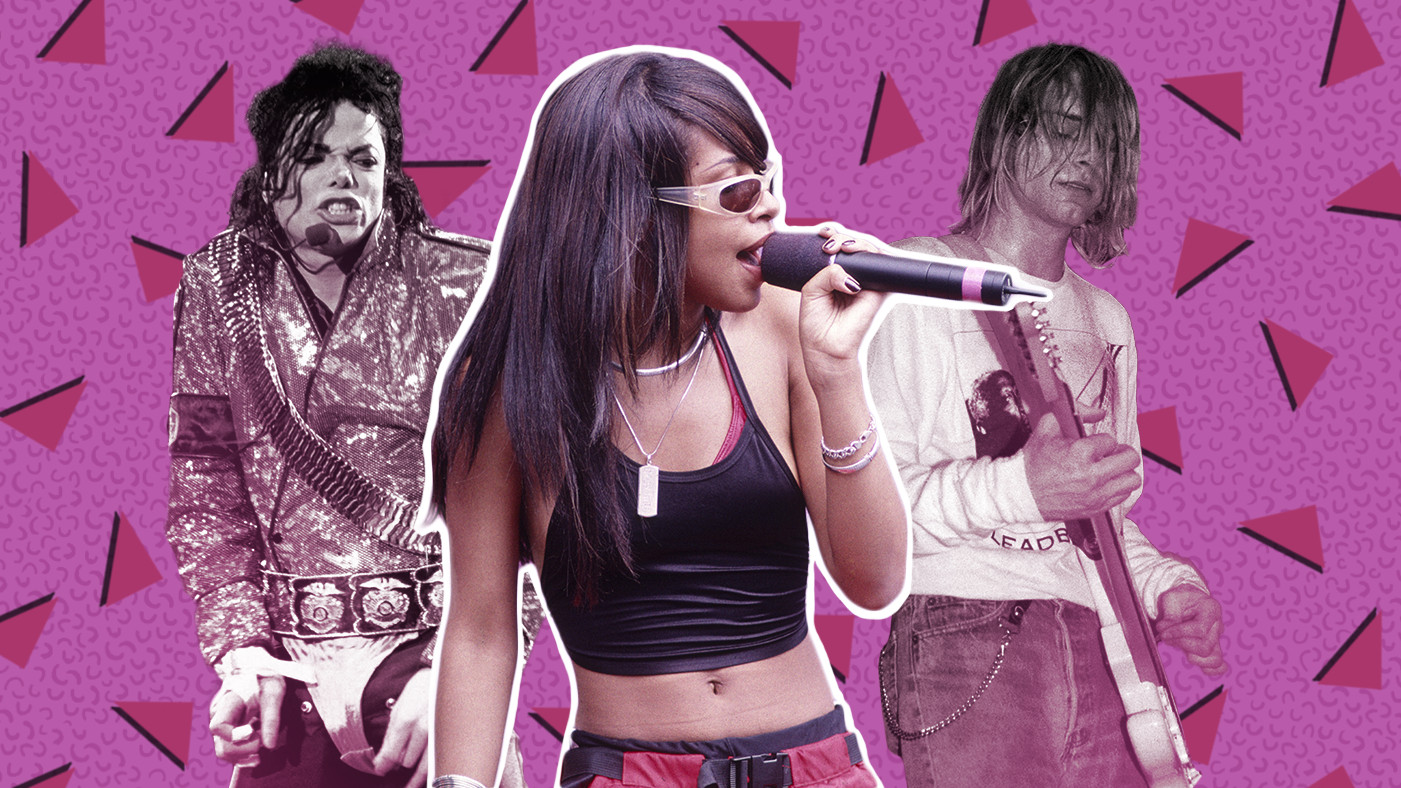 Helium XXX 90s indie rock song
Helium XXX 90s indie rock song
Mary Timony, a guitar hero who would later form Wild Flag and Ex Hex, showcased her unique talent in Helium’s “XXX.” This deceptively sweet ballad takes a dark turn, with Timony deadpanning lyrics about lethal consequences for street harassment, declaring her guitar as her weapon. The song culminates in a sonic outburst where her guitar seemingly “kills” the aggressor, while Timony delivers hilariously dry kiss-off lines: “My heart is a cab…your love is a fad…and you’re a draaag!” “XXX” is a prime example of 90s indie rock’s embrace of unconventional themes and sonic experimentation.
Foxy Brown ft. Jay Z – “I’ll Be” (1996)
“I’ll Be” marked a significant moment for both Foxy Brown and Jay-Z. Foxy Brown, declaring “I’m 2 live, nasty as I wanna be,” asserted her bold and unapologetic persona. Jay-Z, fresh on the scene with Reasonable Doubt, responded with “Don’t shake your sassy ass in front of me,” showcasing his smooth delivery and rising star power. This collaboration was just one example of Jay-Z’s early mastery and hinted at his decades-long reign at the top of the hip-hop world.
Underworld – “Born Slippy .NUXX” (1996)
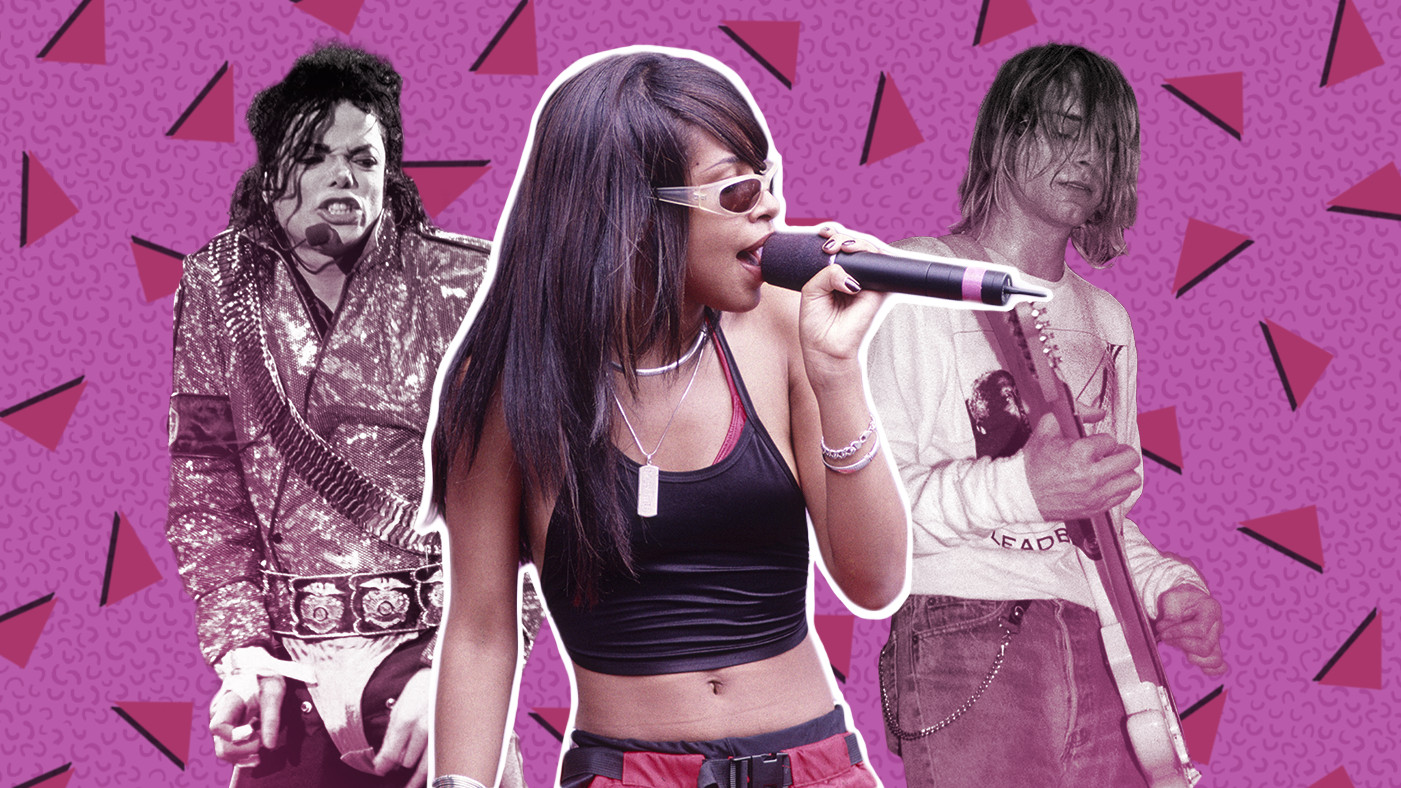 Underworld Born Slippy NUXX 90s electronic song
Underworld Born Slippy NUXX 90s electronic song
Underworld’s “Born Slippy .NUXX” is a sensory explosion of techno energy that unexpectedly crossed over into mainstream popularity after its inclusion in the film Trainspotting. The track’s repetitive “lager lager lager lager” chant became instantly iconic, even though the song’s frenetic sound suggests that lager might be one of the milder substances involved in its creation. “Born Slippy .NUXX” is a landmark track in 90s electronic music, capturing the energy and intensity of the rave scene and bringing it to a wider audience.
Sir Mix-A-Lot – “Baby Got Back” (1992)
“Baby Got Back” by Sir Mix-A-Lot is, well, about butts. This pro-curves anthem became a cultural phenomenon, with nearly everyone in the English-speaking world able to quote lines from its body-positive manifesto. “Baby Got Back” sparked conversations about body image and challenged conventional beauty standards within 90s pop culture, all while delivering an undeniably catchy and humorous hip-hop track.
Fiona Apple – “Paper Bag” (1999)
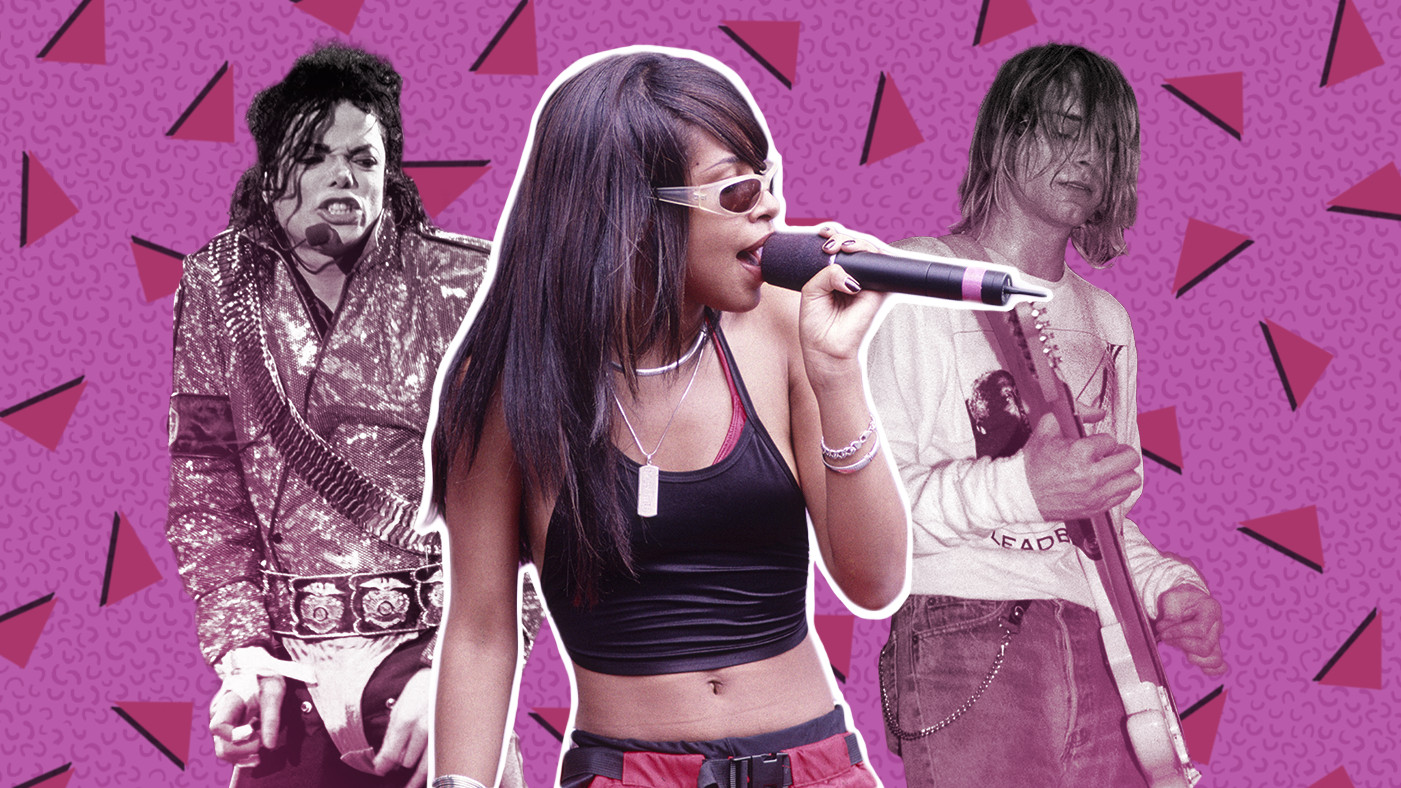 Fiona Apple Paper Bag 90s alternative song
Fiona Apple Paper Bag 90s alternative song
Fiona Apple’s “Paper Bag” is a poignant and introspective ballad about disillusionment in love. The song’s simple yet powerful line, “He thought he was a man, but he was just a little boy,” encapsulates the feeling of romantic disappointment with raw honesty. Apple’s distinctive vocals and piano-driven arrangement made “Paper Bag” a standout track in 90s alternative music, showcasing her unique artistic vision.
Weezer – “Pink Triangle” (1996)
Years before “overshare” became a common term, Rivers Cuomo of Weezer took lyrical oversharing to a new level with “Pink Triangle.” This love song, released in 1996, embodies “straight-dude dumbitude” with a mix of self-deprecation and awkward honesty. “Pink Triangle” is a quintessential Weezer track, blending catchy melodies with introspective and often humorous lyrics that resonated with the alternative rock audience of the 90s. Cuomo’s self-aware persona, comparing himself to Nirvana “in his mind,” added to the song’s quirky charm.
Daft Punk – “Around the World” (1997)
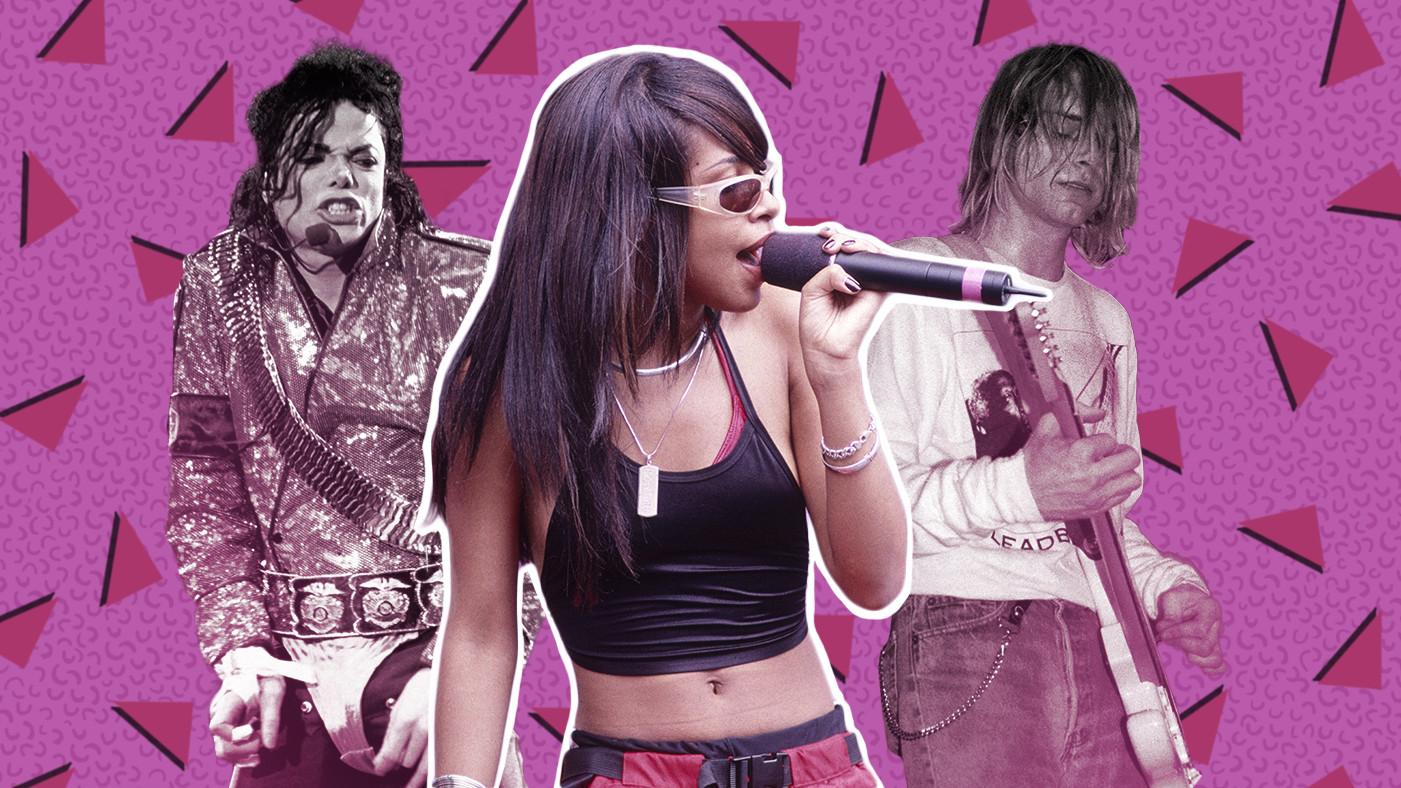 Daft Punk Around the World 90s electronic song
Daft Punk Around the World 90s electronic song
Daft Punk, the enigmatic French techno robots, took the bassline from Chic’s “Good Times” and propelled it into the stratosphere with “Around the World.” This minimalist yet hypnotic track, driven by its repetitive title phrase and filter-house sound, launched countless imitators and defined a significant sound within 90s electronic music. “Around the World” is a testament to Daft Punk’s innovative approach to electronic music production and their lasting influence on the genre.
Natalie Imbruglia – “Torn” (1998)
“Torn” by Natalie Imbruglia is a karaoke classic, standing apart in the karaoke canon. For many, 1998 remains the golden summer of karaoke, and “Torn” was undoubtedly a central anthem. This tear-jerker ballad remains emotionally resonant even today. However, considering Natalie Imbruglia’s string of celebrity relationships, the song’s heartbroken sentiment takes on a slightly ironic twist, suggesting that perhaps she didn’t need anyone’s shoulder to cry on after all. “Torn” is a quintessential 90s pop ballad, showcasing Imbruglia’s vocal talent and the era’s penchant for emotionally charged anthems.
Harvey Danger – “Flagpole Sitta” (1998)
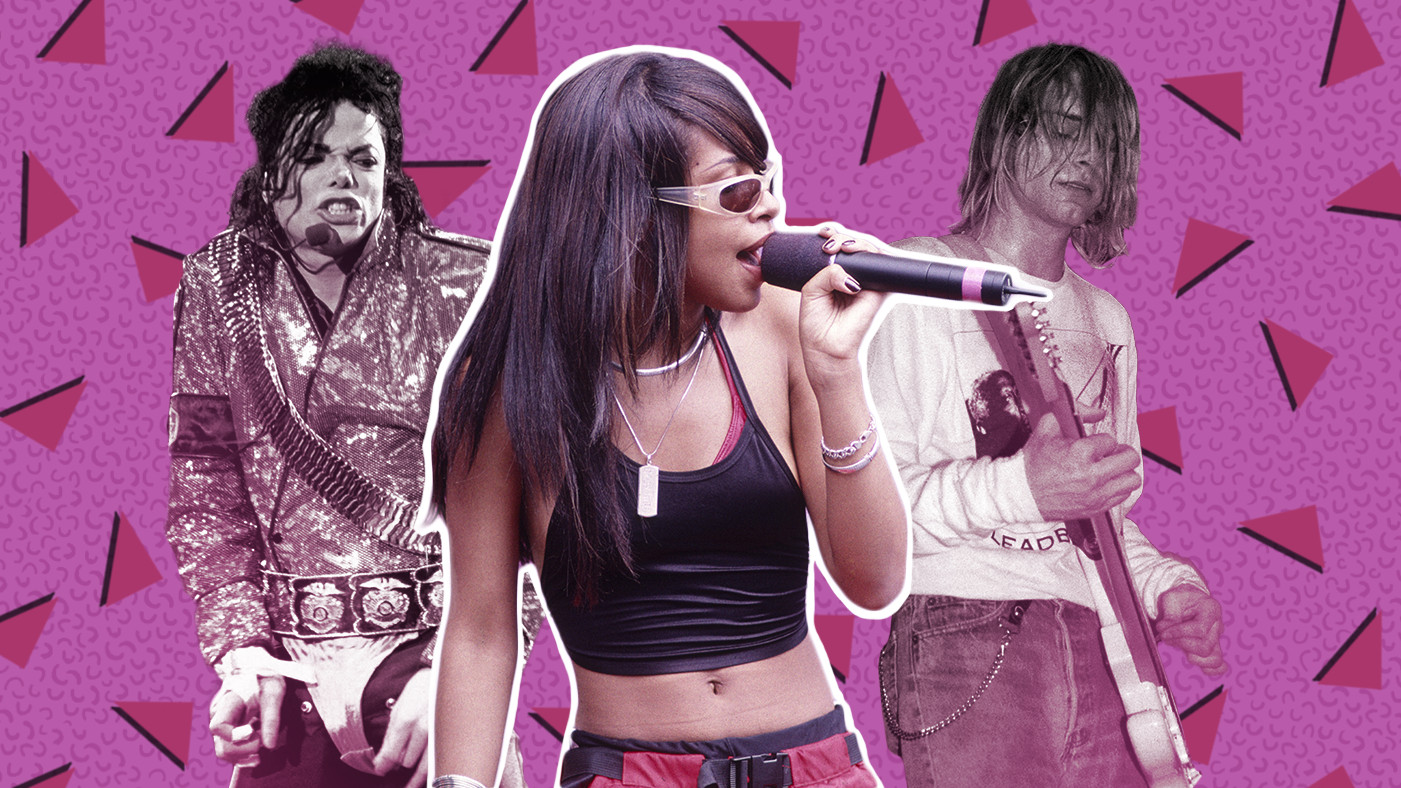 Harvey Danger Flagpole Sitta 90s alternative song
Harvey Danger Flagpole Sitta 90s alternative song
Like “Torn,” “Flagpole Sitta” by Harvey Danger is another karaoke staple that perfectly captures the spirit of the late 90s. Lines like “I wanna publish zines and rage against machines” perfectly encapsulate the era’s counter-cultural aspirations, while “I don’t even own a TV” became a cliché that hipsters quickly abandoned as the decade came to a close. “Flagpole Sitta” is a witty and self-aware alternative rock anthem that defined a specific slice of 90s youth culture.
Aaliyah – “Are You That Somebody?” (1998)
“Are You That Somebody?” is a prime example of Timbaland’s avant-garde production genius, pushed into mainstream pop territory by Aaliyah’s effortlessly cool vocals. This track, with its unconventional beat and baby coo samples, showcased the groundbreaking sound that Timbaland and Aaliyah pioneered in 90s R&B. Aaliyah’s smooth delivery and Timbaland’s innovative production made “Are You That Somebody?” a truly unique and influential 90s song.
Oasis – “Wonderwall” (1995)
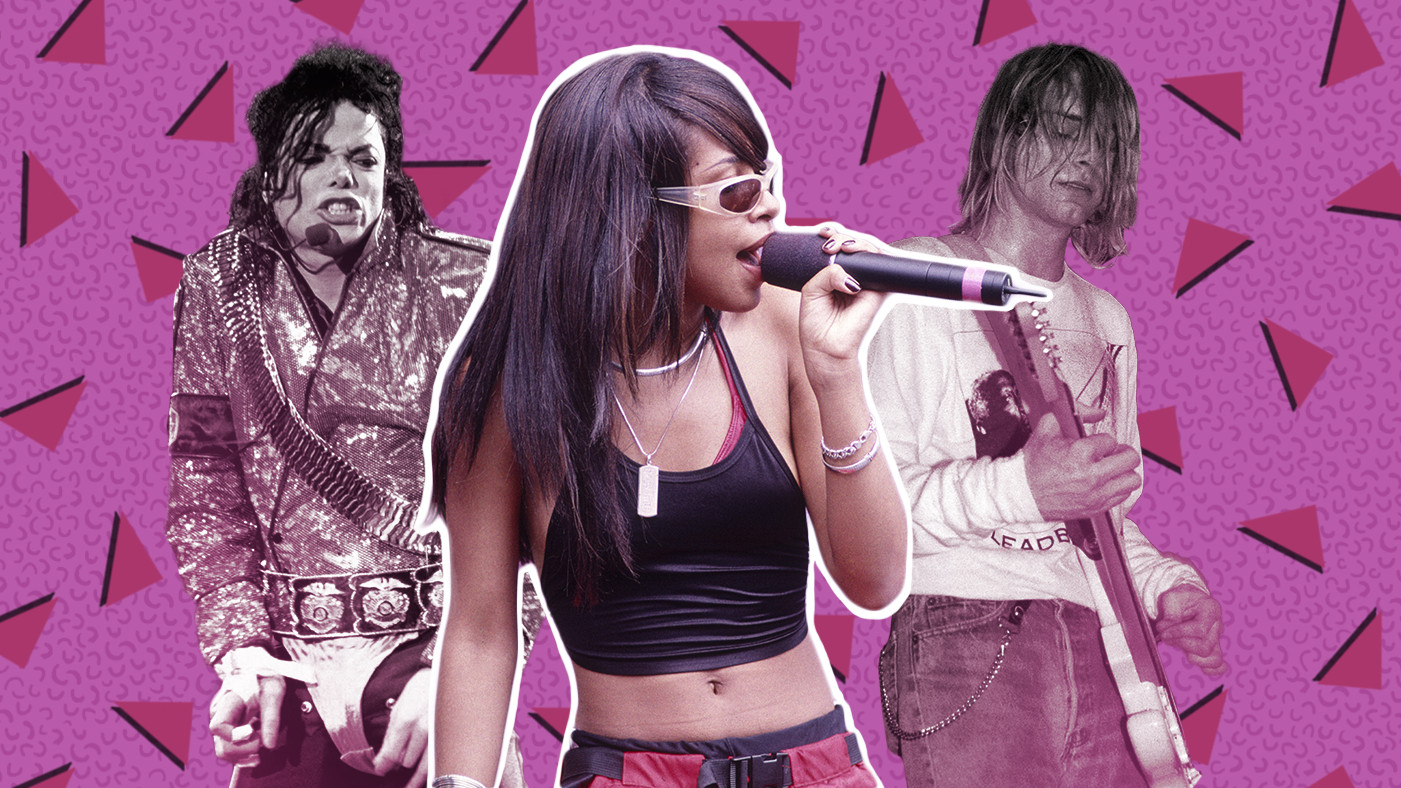 Oasis Wonderwall 90s Britpop song
Oasis Wonderwall 90s Britpop song
Noel Gallagher of Oasis famously admitted that he had no idea what a “wonderwall” actually was. However, the meaning of the term was irrelevant; “Wonderwall” became a global singalong anthem, capable of turning any room into a boisterous, if slightly out-of-tune, pub gathering. This Britpop classic, with its anthemic chorus and relatable lyrics about longing and connection, cemented Oasis’s place as a leading band of the 90s.
Mobb Deep – “Shook Ones Pt. II” (1995)
“Shook Ones Pt. II” by Mobb Deep is a hip-hop equivalent to “Gimme Shelter,” offering a stark and unflinching look at the harsh realities of urban life. The Queensbridge duo, Prodigy and Havoc, paint a vivid picture of a dangerous environment where vulnerability of any kind can be fatal. “There ain’t no such thing as halfway crooks” became an iconic line, encapsulating the song’s uncompromising worldview. Mobb Deep were known for their hardcore East Coast sound, and “Shook Ones Pt. II” remains their definitive hit, retaining its chilling power decades later.
Smashing Pumpkins – “1979” (1995)
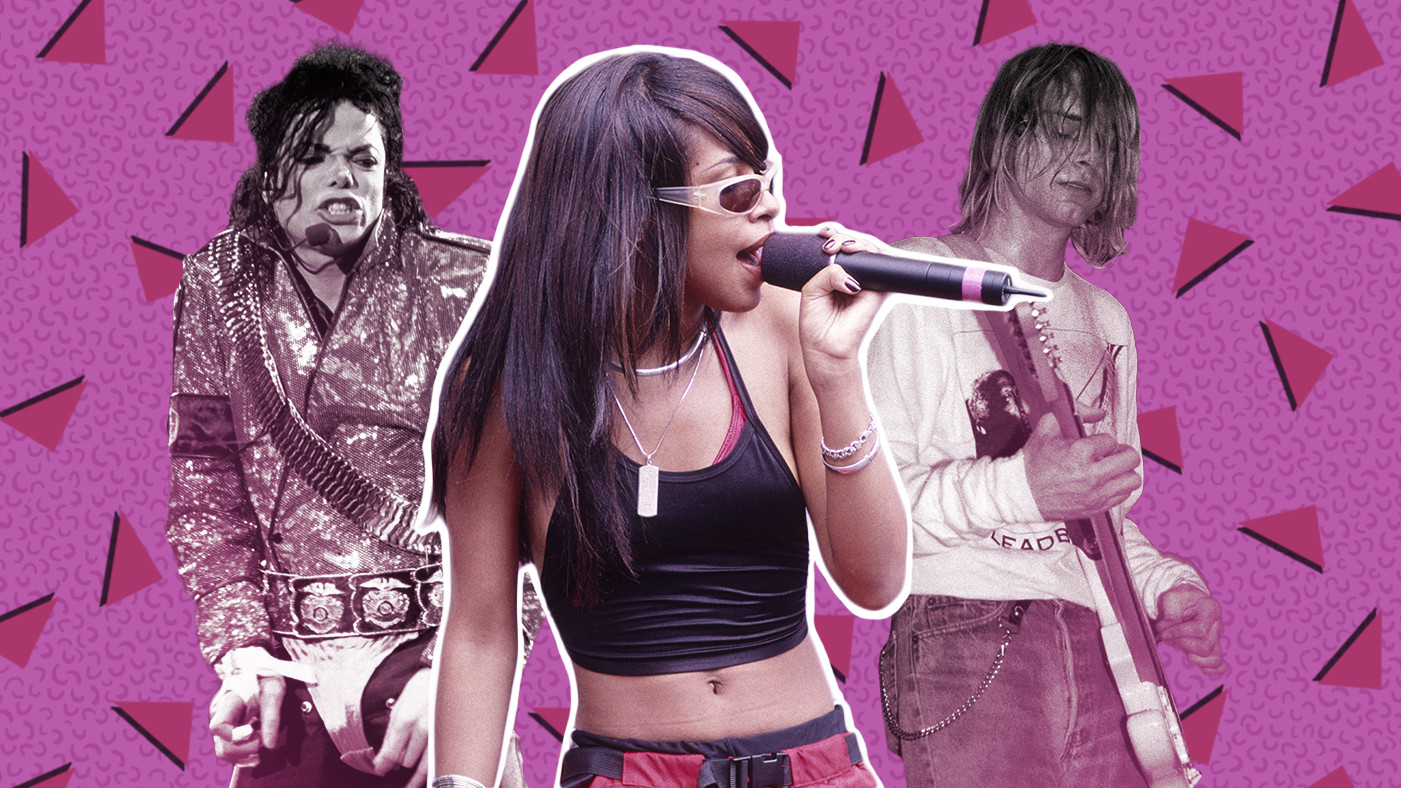 Smashing Pumpkins 1979 90s alternative rock song
Smashing Pumpkins 1979 90s alternative rock song
Billy Corgan’s “1979” is an ode to the bittersweet pangs of suburban Midwestern adolescence during summertime. The song’s shimmering guitar hook, courtesy of James Iha, is undeniably captivating, even for those who typically dislike Corgan’s vocal style. “1979” became so beloved that even Pavement, known for their indie cred, covered it. The song’s nostalgic lyrics and dreamy soundscape perfectly captured the mood of youthful longing and the feeling of time moving both too fast and too slow, a common theme in 90s alternative rock. “Faster than the speed of sound, faster than we thought we’d go,” encapsulates the feeling of a generation on the cusp of change.
Beck – “Loser” (1993)
Beck emerged as a poet for his generation in the 90s, a decade overflowing with self-proclaimed poets. “Loser” showcased Beck’s eclectic style, blending blues riffs, beatboxing, and even a leaf blower into a uniquely captivating sound. The music video, with its blatant copyright infringement of George Lucas properties, further solidified Beck’s quirky and irreverent persona. “Loser” became an anthem for a generation embracing irony and self-deprecation, and Beck’s genre-bending approach became a hallmark of 90s alternative music.
Whitney Houston ft. Faith Evans and Kelly Price – “Heartbreak Hotel” (1998)
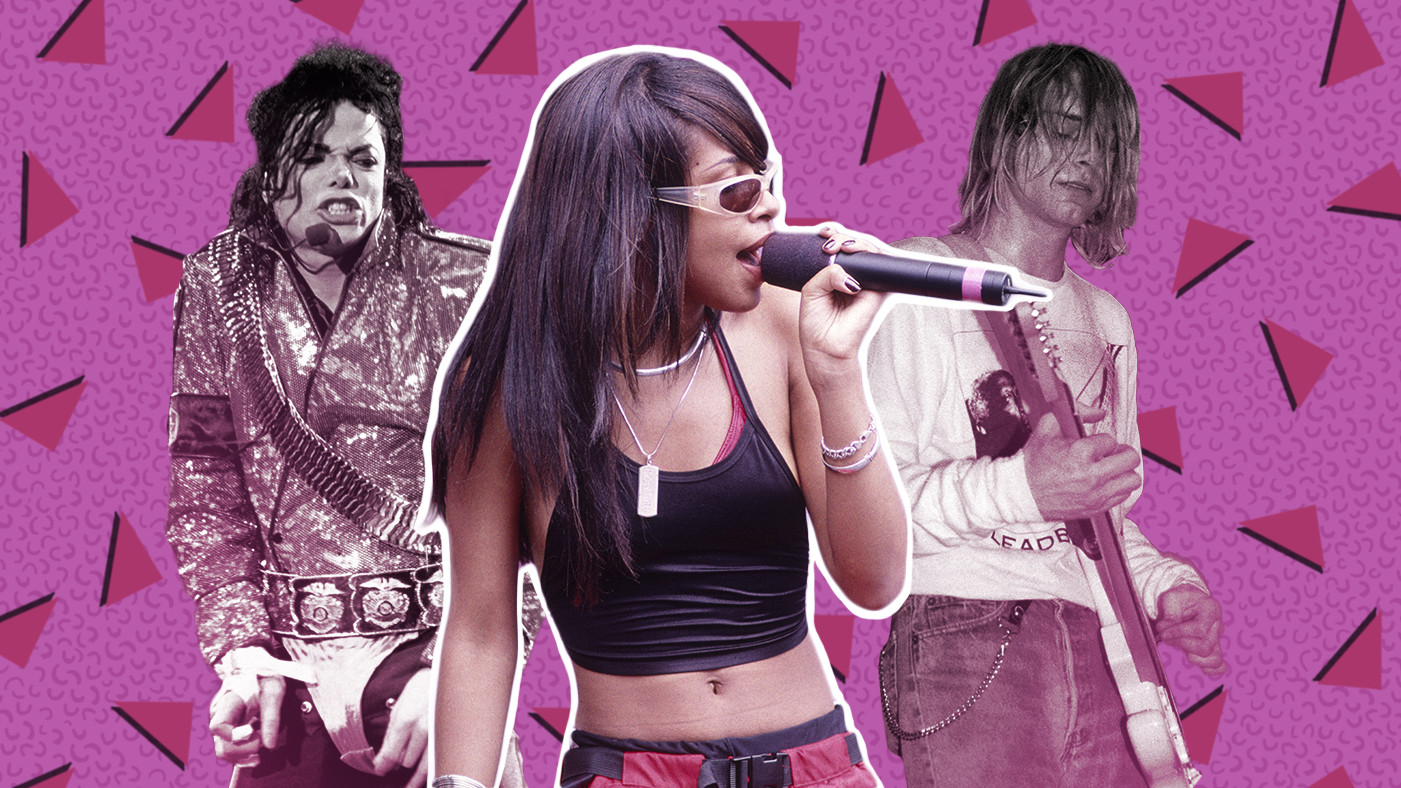 Whitney Houston Heartbreak Hotel 90s R&B song
Whitney Houston Heartbreak Hotel 90s R&B song
Whitney Houston’s “Heartbreak Hotel,” featuring Faith Evans and Kelly Price, is a powerful kiss-off to a disappointing romantic partner. Houston’s vocals build from hushed whispers to soaring high notes, delivering a potent dose of sweet revenge. At the time, “Heartbreak Hotel” felt like the beginning of a new chapter for Whitney, showcasing a more mature and assertive side of her artistry. Sadly, it turned out to be closer to the end of an era, marking a turning point in her career. Nevertheless, the song remains a testament to her vocal prowess and enduring impact on 90s R&B.
Garbage – “Queer” (1995)
Garbage, fronted by Shirley Manson and produced by alt-rock veteran Butch Vig, delivered a unique blend of electronic and rock elements in “Queer.” Manson’s haunting vocals whisper, “You can touch me if you want/But you can’t stop,” creating an unsettling and alluring atmosphere. “Queer” showcased the darker, more industrial-influenced side of 90s alternative rock, with Manson’s distinctive voice becoming a defining element of the band’s sound.
Beastie Boys – “Sure Shot” (1994)
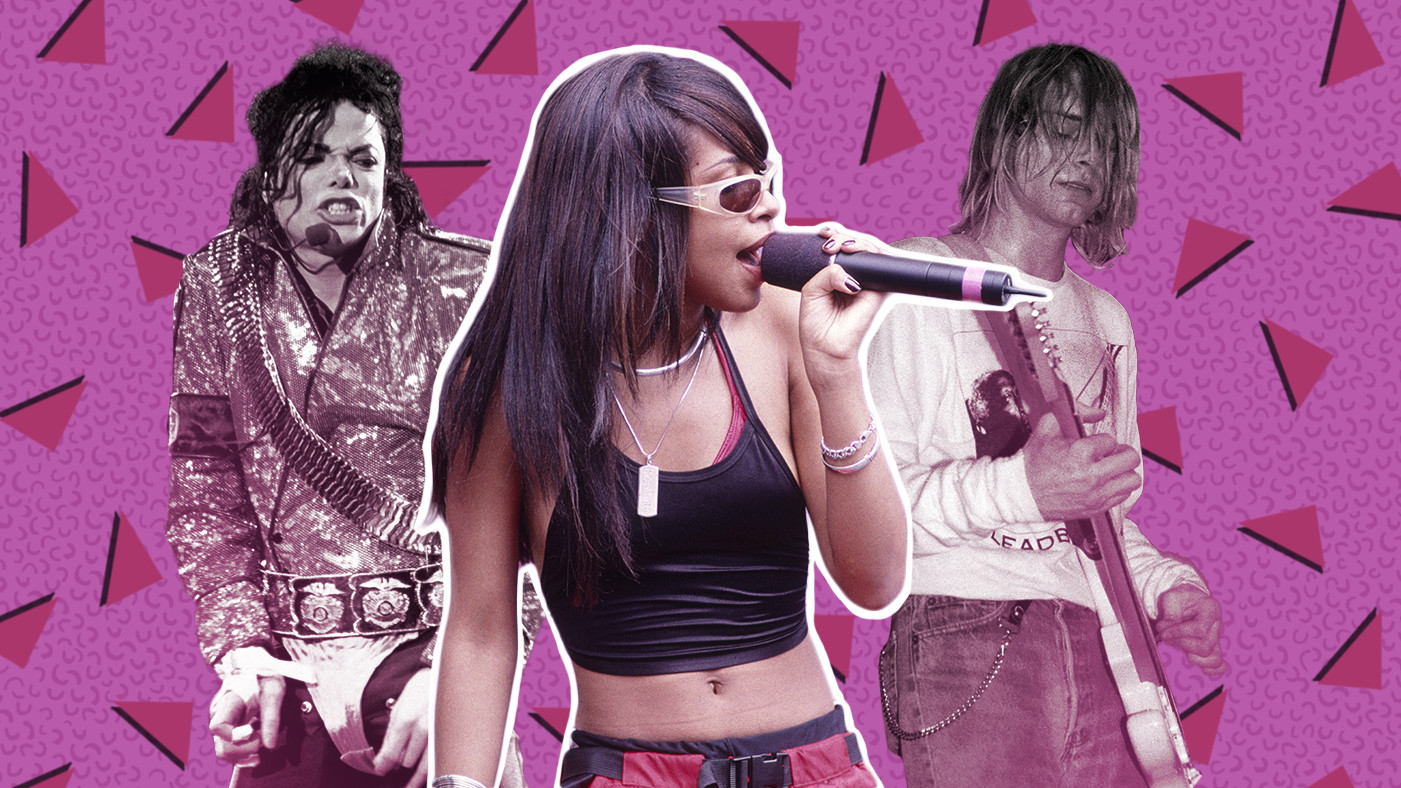 Beastie Boys Sure Shot 90s hip hop song
Beastie Boys Sure Shot 90s hip hop song
The Beastie Boys, known for their genre-bending and playful approach to hip hop, delivered a classic track with “Sure Shot.” Adam Yauch’s shout-out “to all the mothers and the sisters and the wives and friends” added a layer of inclusivity to their typically irreverent style. “Sure Shot,” with its sample-heavy production and energetic delivery, is a testament to the Beastie Boys’ enduring creativity and their place as pioneers of 90s hip hop. “Because you can’t, you won’t and you don’t stop” became a mantra associated with their relentless energy and innovation.
Sleater-Kinney – “Get Up” (1999)
Sleater-Kinney, the goddesses of Portland punk rock, captured the feeling of isolation and defiance in “Get Up.” The song’s raw energy and powerful guitars create a sonic landscape that feels both desolate and empowering. “Get Up” is an anthem for those who refuse to surrender to feelings of being lost or alone, with guitars that sound like “a bucket of stars dumped into the universe,” conveying both fragility and explosive power. Sleater-Kinney became leading voices in the riot grrrl movement and 90s indie rock.
Outkast – “Rosa Parks” (1998)
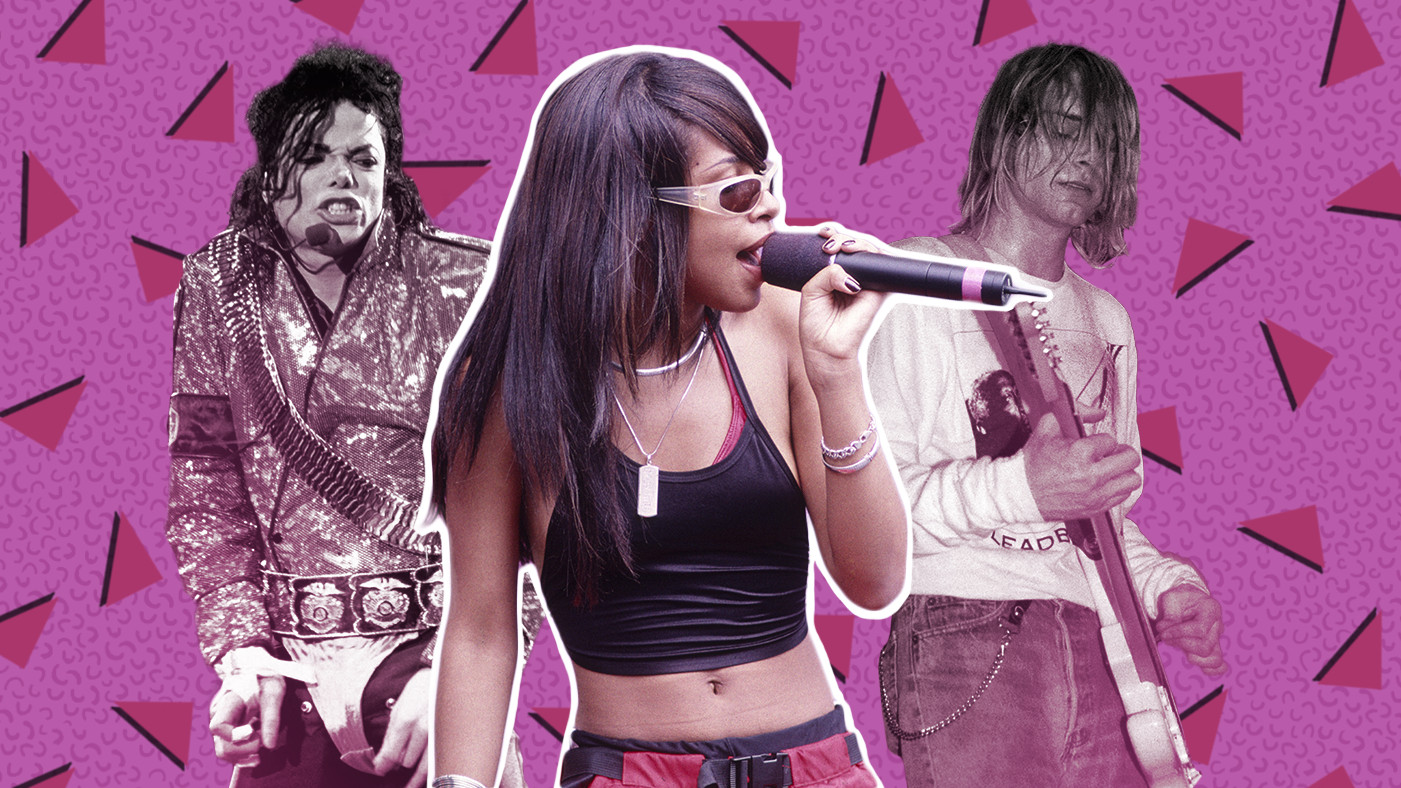 Outkast Rosa Parks 90s hip hop song
Outkast Rosa Parks 90s hip hop song
Outkast’s “Rosa Parks” became the funky-bus jam of the decade, a Dirty South anthem with an infectious groove and a surprising harmonica solo (apologies to Blues Traveler!). This track introduced much of the country to the unique sound that Big Boi and André 3000 were brewing in Atlanta’s “dirty-dirty ATLien nation.” “Rosa Parks” also marked the mainstream introduction of the word “crunk” into the cultural lexicon. Even today, the song sounds as innovative and exhilarating as it did in the 90s, showcasing Outkast’s pioneering role in Southern hip hop.
R.E.M. – “Nightswimming” (1992)
“Nightswimming” by R.E.M. is a bittersweet piano reverie about nostalgia and fleeting memories. Michael Stipe’s evocative lyrics paint a picture of skinny-dipping in the Georgia pines, a moment in time that he desperately tries to hold onto before it fades away into the mundane of everyday life. This track, from what many consider R.E.M.’s peak album era of the early 90s, showcases the band’s ability to blend introspective lyrics with beautiful, melancholic melodies. “Nightswimming” is a testament to the power of memory and the poignant beauty of fleeting moments.
Ol’ Dirty Bastard – “Brooklyn Zoo” (1995)
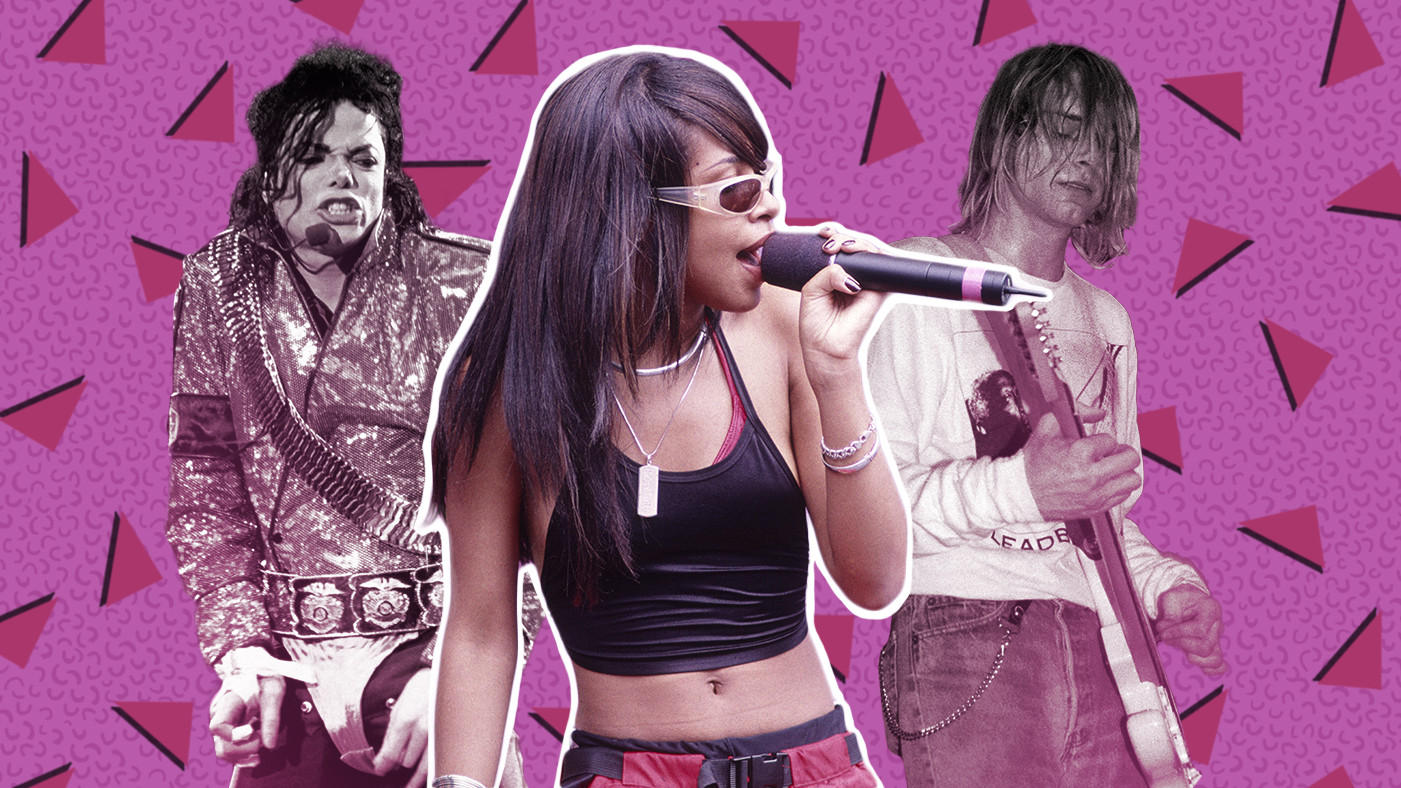 Ol Dirty Bastard Brooklyn Zoo 90s hip hop song
Ol Dirty Bastard Brooklyn Zoo 90s hip hop song
Ol’ Dirty Bastard, aka Big Baby Jesus, brought his unique brand of chaotic energy to “Brooklyn Zoo.” While the Wu-Tang Clan was known for their intricate album-length concepts rooted in “true mathematics,” “Brooklyn Zoo” was their most successful and humorous attempt at radio airplay. ODB’s unrestrained vocal performance, shimmying all over RZA’s “broken piano keys” production, is both hilarious and captivating. “Brooklyn Zoo” is proof that Wu-Tang’s appeal could reach beyond hardcore hip-hop heads, and that “Wu-Tang really is for the children.”
The Breeders – “Cannonball” (1993)
Kim Deal, fresh from her time with alt-rock icons Pixies, formed The Breeders with her twin sister Kelley and delivered the wonderfully messy and infectious “Cannonball.” This song, with its shaggy-headed, big-hearted energy, became one of the most unexpected radio hits of the 90s. “Cannonball” is a testament to the quirky and unconventional sounds that found mainstream success in the 90s alternative rock boom. Its weirdness was part of its charm, making it a truly unique and memorable song of the decade.
Hole – “Doll Parts” (1994)
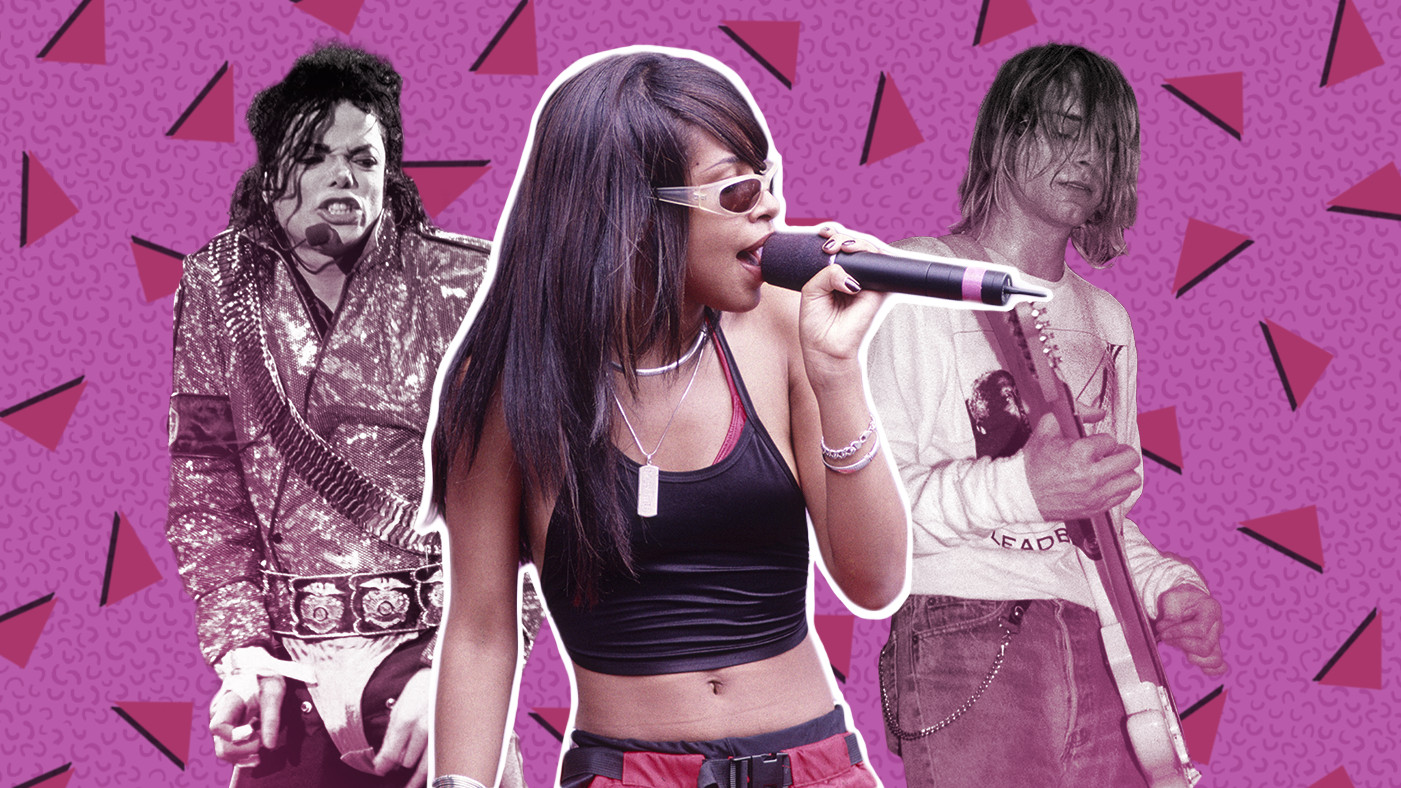 Hole Doll Parts 90s grunge song
Hole Doll Parts 90s grunge song
“Doll Parts” is arguably Courtney Love’s finest musical moment with Hole. This emotionally raw and vulnerable ballad explores themes of insecurity and the pressures of female image. The song’s poignant lyrics and Love’s emotionally charged vocals resonate deeply, evoking a sense of heartache and fragility. “Doll Parts” became an anthem for a generation grappling with identity and societal expectations, solidifying Hole’s place as a leading voice in 90s grunge and alternative rock.
TLC – “No Scrubs” (1999)
TLC, the queens of crazy-sexy-cool R&B from Atlanta, closed out the 90s with the hilarious and empowering “No Scrubs.” This track is a direct address to all the “scrubs” out there – men who are lazy, unreliable, and generally undesirable partners. “No Scrubs” became a cultural phenomenon, sparking countless conversations about dating, relationships, and female empowerment. The song’s catchy chorus and sassy lyrics made it an instant classic, and Left Eye’s iconic verse added another layer of fire to this 90s anthem. Burn on, Left Eye.
Liz Phair – “Fuck and Run” (1993)
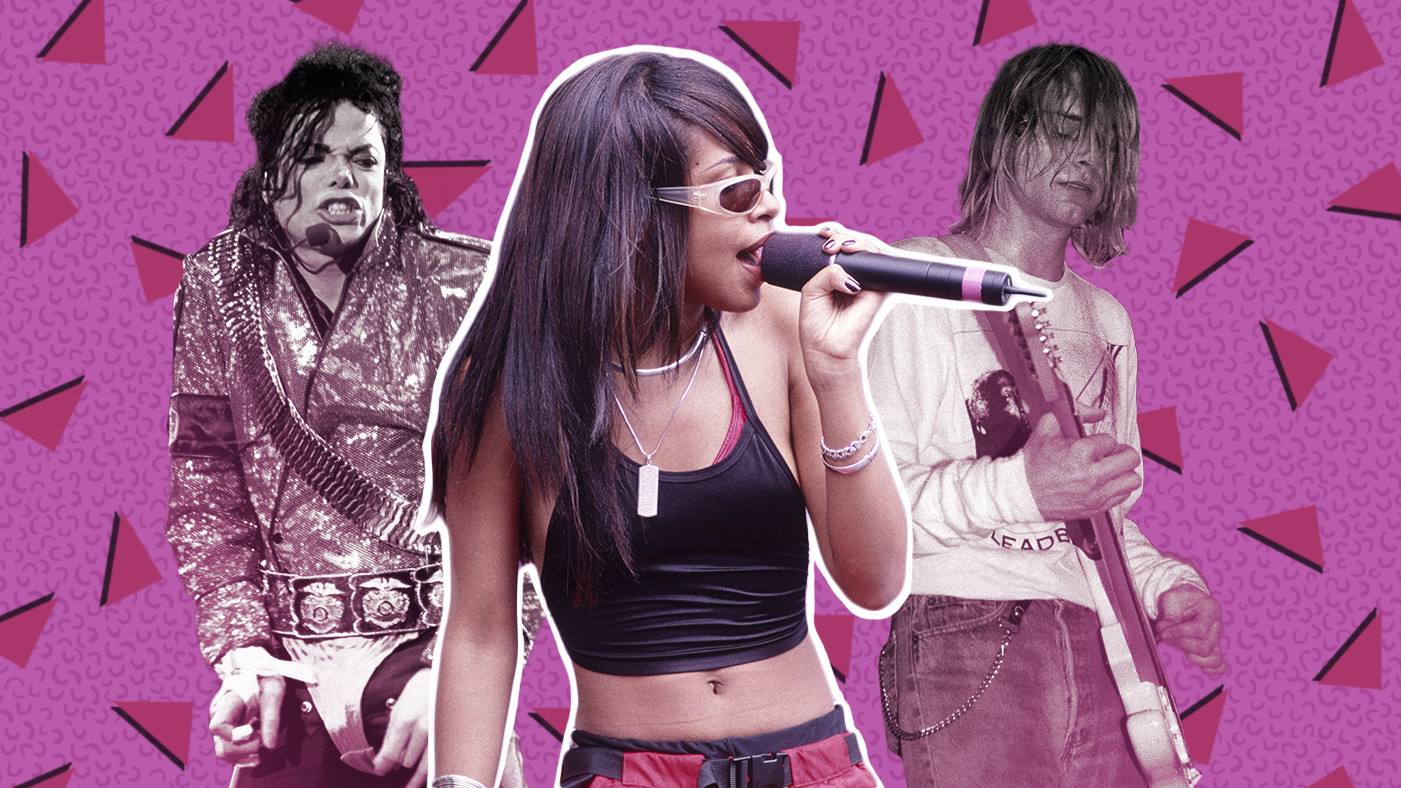 Liz Phair Fuck and Run 90s indie rock song
Liz Phair Fuck and Run 90s indie rock song
Liz Phair’s “Fuck and Run” is a brutally honest and unflinching look at casual relationships and the emotional fallout they can leave behind. Phair’s plainspoken vocals and direct lyrics, delivered with a raw vulnerability, resonated deeply with listeners. The song’s theme of disposable relationships and the imbalance of power in heterosexual dynamics unfortunately remains timeless. “Boys only want love if it’s torture,” Phair observes, capturing a cynical yet relatable truth about love in the 90s and beyond. “Fuck and Run” is a landmark track in 90s indie rock and female singer-songwriter music.
Pulp – “Common People” (1995)
Jarvis Cocker, the charismatic frontman of Pulp, oozes more soul and swagger with a simple exhale of cigarette smoke than many singers manage in their entire careers. “Common People” is a Britpop masterpiece, a witty and insightful social commentary wrapped in a danceable, anthemic package. The song is full of sex, sarcasm, and a touch of despair, but mostly, it’s about sex, capturing the complex and often contradictory spirit of Britpop and 90s British culture.
Missy Elliott – “The Rain (Supa Dupa Fly)” (1997)
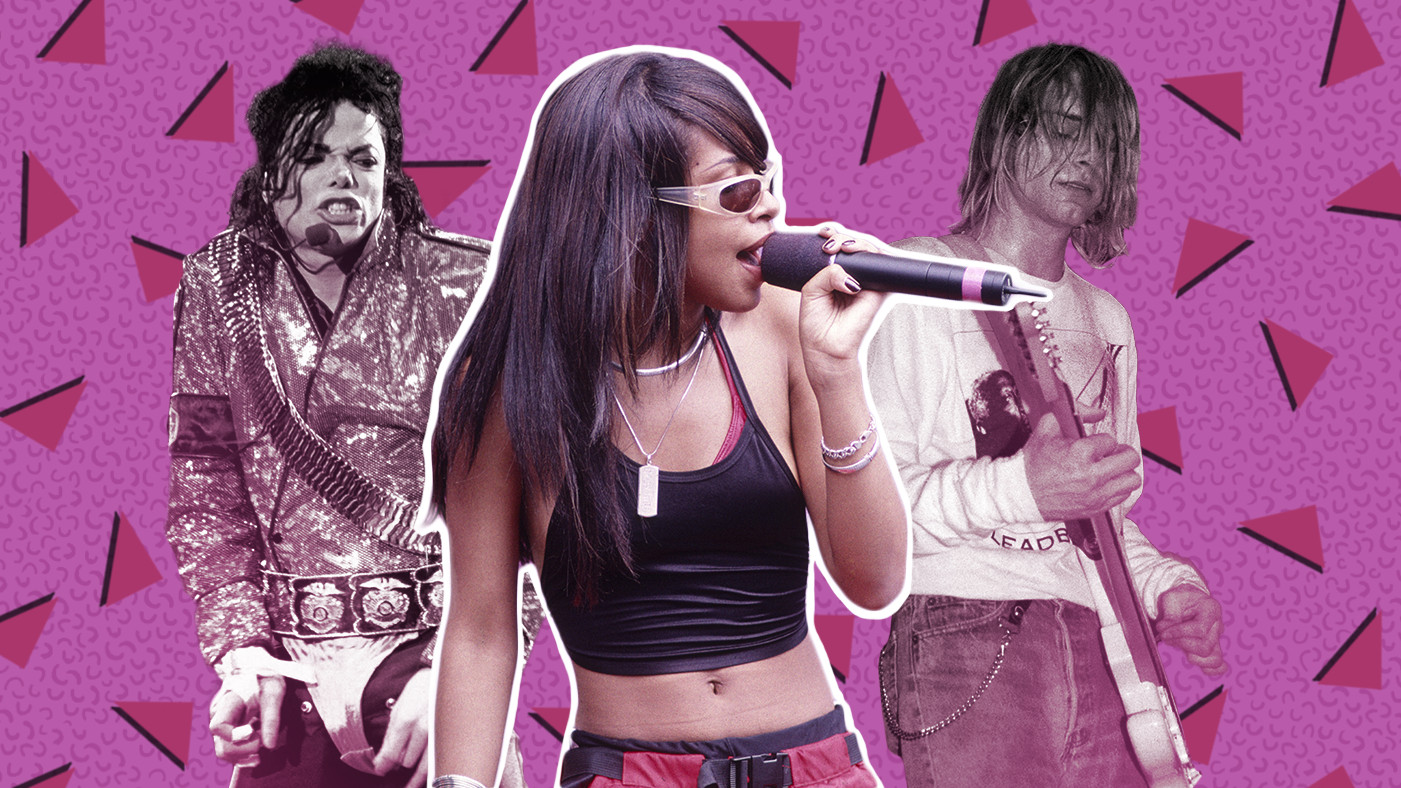 Missy Elliott The Rain Supa Dupa Fly 90s hip hop song
Missy Elliott The Rain Supa Dupa Fly 90s hip hop song
“The Rain (Supa Dupa Fly)” marked the arrival of Missy “Misdemeanor” Elliott and Timbaland, the duo who would go on to dominate the late 90s and early 2000s music scene. Together, they warped a 70s R&B sample into a long, sweaty Southern night, complete with cricket chirps and rolling storm clouds. Missy’s innovative flow and Timbaland’s groundbreaking production created a sound that was both futuristic and deeply rooted in R&B tradition. “The Rain (Supa Dupa Fly)” is a landmark track in 90s hip hop and a testament to the power of Missy and Timbaland’s collaboration. “Oh, Missy, try to maintain.”
Pavement – “Gold Soundz” (1994)
Pavement’s “Gold Soundz” is a masterclass in economical songwriting, packing all the boyish heart-on-sleeve urgency of The Beach Boys’ Pet Sounds into just three minutes. Stephen Malkmus and his “slack-ass crew” waste not a single second, with every guitar twang and breathy mumble perfectly contributing to the song’s emotional surge. “Gold Soundz” captures the essence of 90s indie rock: raw, emotionally honest, and seemingly effortless, even though it’s meticulously crafted. “Almost like they care or something,” the song seems to hint, encapsulating the era’s ironic detachment and underlying sincerity.
Dr. Dre ft. Snoop Dogg – “Nuthin’ but a ‘G’ Thang” (1992)
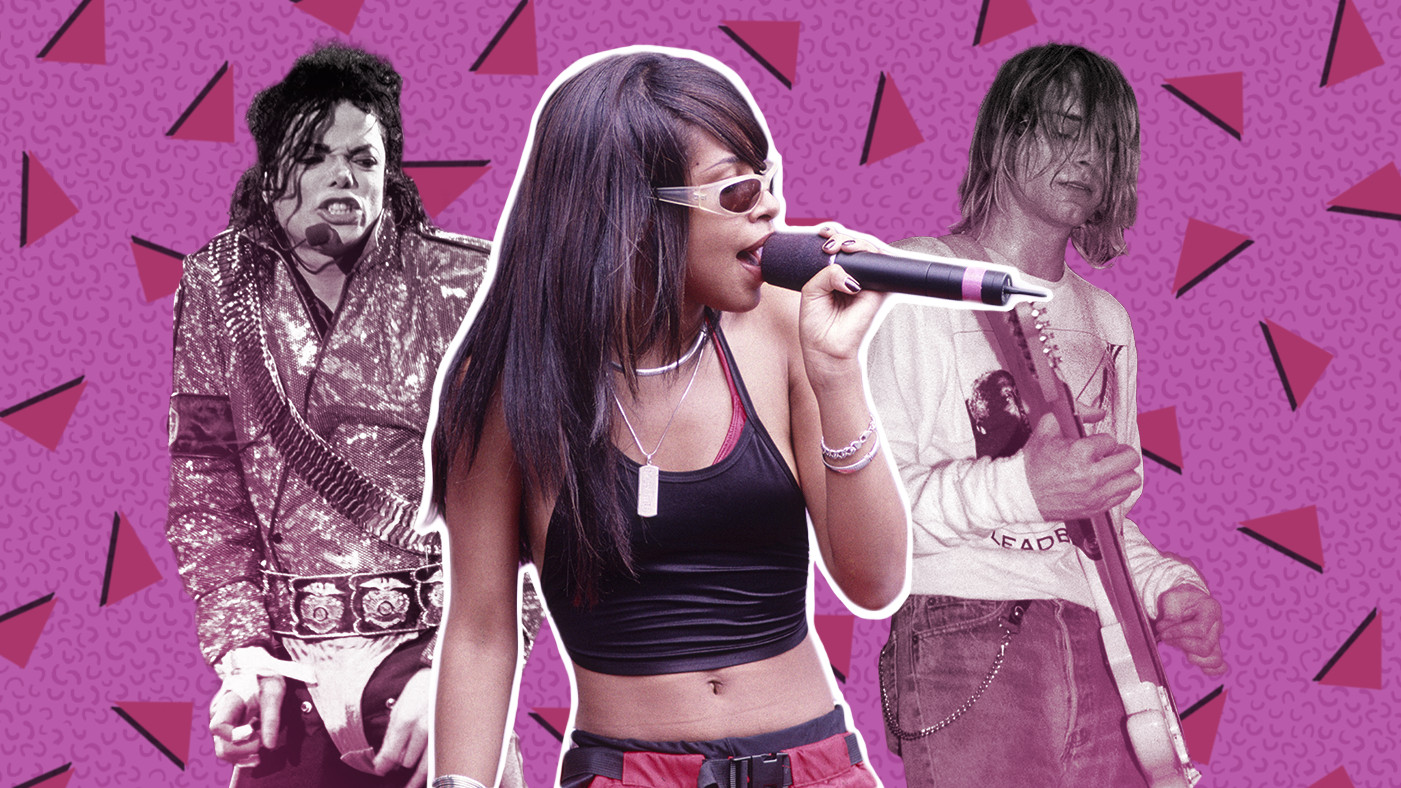 Dr Dre Snoop Dogg Nuthin but a G Thang 90s hip hop song
Dr Dre Snoop Dogg Nuthin but a G Thang 90s hip hop song
Dr. Dre, already a hip-hop legend from his N.W.A. days, returned even stronger in the 90s with “Nuthin’ but a ‘G’ Thang.” This track, featuring the then-newcomer Snoop Dogg, defined the G-funk sound and became a cultural phenomenon. The groove is undeniably infectious, making any car bounce with its iconic bassline, “realer than ‘Real Deal’ Holyfield.” “Nuthin’ but a ‘G’ Thang” cemented Dr. Dre’s status as a production genius and launched Snoop Dogg into superstardom, shaping the landscape of 90s hip hop and West Coast music.
Bikini Kill – “Rebel Girl” (1993)
Bikini Kill, led by the ferocious Kathleen Hanna, teamed up with Joan Jett to create “Rebel Girl,” a riot grrrl anthem that delivered on every radical promise punk rock ever made. This seven-inch single is a powerful declaration of female empowerment and a celebration of female solidarity. “Rebel Girl” is an anthem for the “neighborhood girl with the revolution in her hips,” a song that proved rock & roll could be both politically charged and emotionally resonant. Bikini Kill became leading figures in the riot grrrl movement, challenging gender norms and pushing punk rock into new territories.
Notorious B.I.G. ft. Mase and Puff Daddy – “Mo Money Mo Problems” (1997)
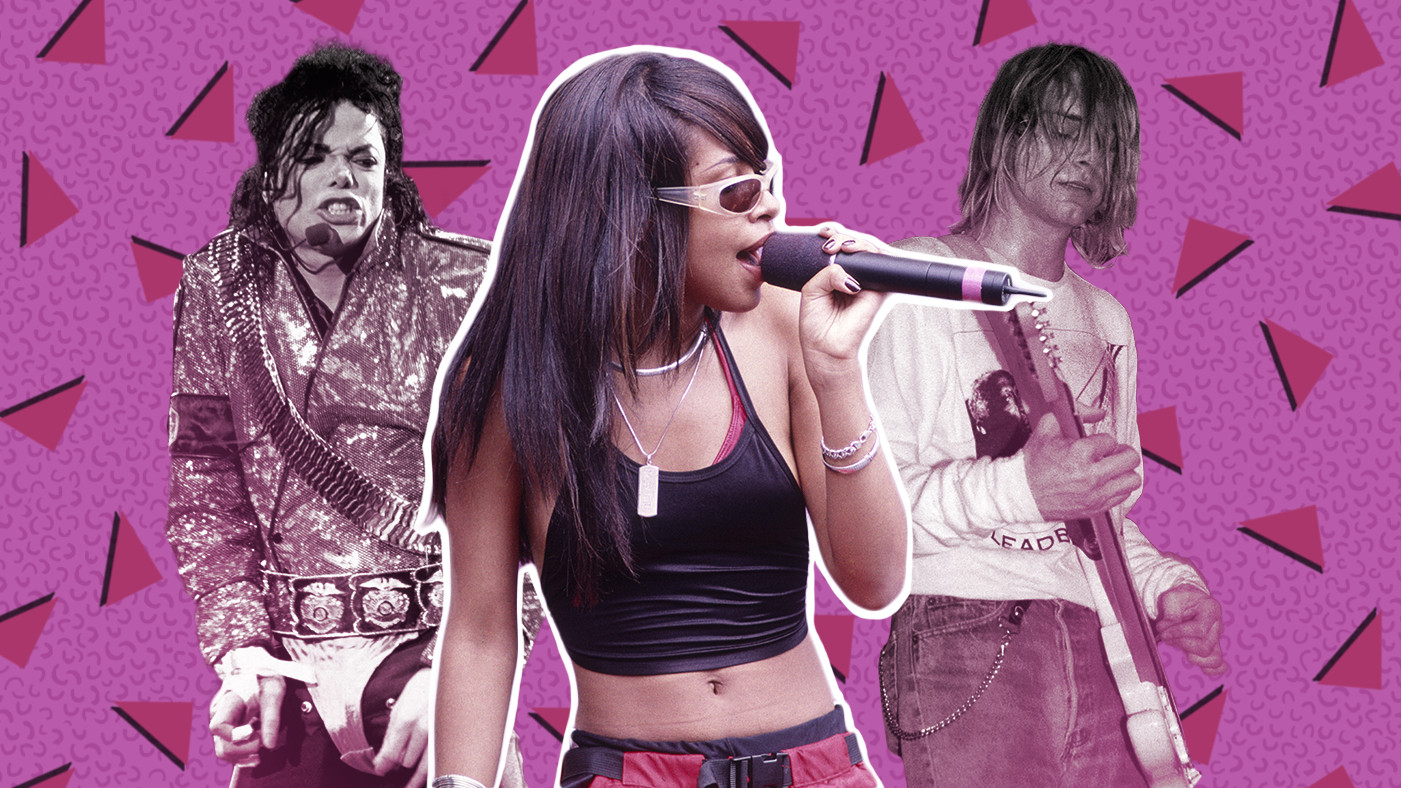 Notorious BIG Mo Money Mo Problems 90s hip hop song
Notorious BIG Mo Money Mo Problems 90s hip hop song
The Notorious B.I.G., the late and incredibly talented rapper, possessed more soul and swagger in a simple throat-clearing before his verse than most rappers achieve in their entire careers. “Mo Money Mo Problems,” featuring Mase and Puff Daddy, became an accidental epitaph, reaching Number One shortly after Biggie’s tragic death. Yet, the song’s celebratory and upbeat vibe makes him sound impossibly alive and vibrant. “Mo Money Mo Problems” is a bittersweet reminder of Biggie’s immense talent and lasting legacy in 90s hip hop. A burning question remains: Did Mase ever get to see his name on a blimp?
Blackstreet – “No Diggity” (1996)
Blackstreet’s “No Diggity” is a utopian celebration of the rump-shaking essence of American music. Teddy Riley, the Virginia-via-Harlem beatmaster, masterfully blended doo-wop, Dr. Dre-inspired beats, old-school R&B harmonies, piano rumbles, and a sample of acoustic blues guitar from Bill Withers into a seamless groove. “No Diggity” is a sonic melting pot, representing the diverse influences that shaped 90s R&B and hip hop. The song envisioned a future where musical boundaries blurred and genres intertwined, a future we are all fortunate to be living in today.
Nirvana – “Smells Like Teen Spirit” (1991)
“Smells Like Teen Spirit” by Nirvana is the song that changed everything. It shattered established rules about music, proving how much raw emotion could be conveyed through four simple chords and a deliberately “crummy” guitar solo. This song kicked the future of music “in the teeth,” challenging complacency and the status quo. “Smells Like Teen Spirit” was Kurt Cobain’s direct challenge to the audience, a call to question everything and resist settling for the “politics of the inevitable.” Even after all these years, the challenge remains as potent and relevant as ever, making “Smells Like Teen Spirit” the ultimate anthem of 90s music and a timeless call to action.

